
Brake Work on the 1953 Aston Martin DB2/4
Our restoration team have been making amazing progress on our 1953 Aston Martin DB2/4 at our Pettistree workshops. Our technician Steve, who is the main


Our restoration team have been making amazing progress on our 1953 Aston Martin DB2/4 at our Pettistree workshops. Our technician Steve, who is the main

Our technician Steve has been working on fitting up the brakes to our 1953 Aston Martin DB2/4. The first step in the process is for

Here are Steve’s notes relating to his work on our 1953 Aston Martin DB2/4:

The new fuel pickup for our 1953 Aston Martin DB2/4 fits other models so has longer pipes than needed. Steve has modified it so it

Paintshop manager Chris has been prepping the interior and exterior of the body of our 1953 Aston Martin DB2/4 ready for epoxy primer and paint.
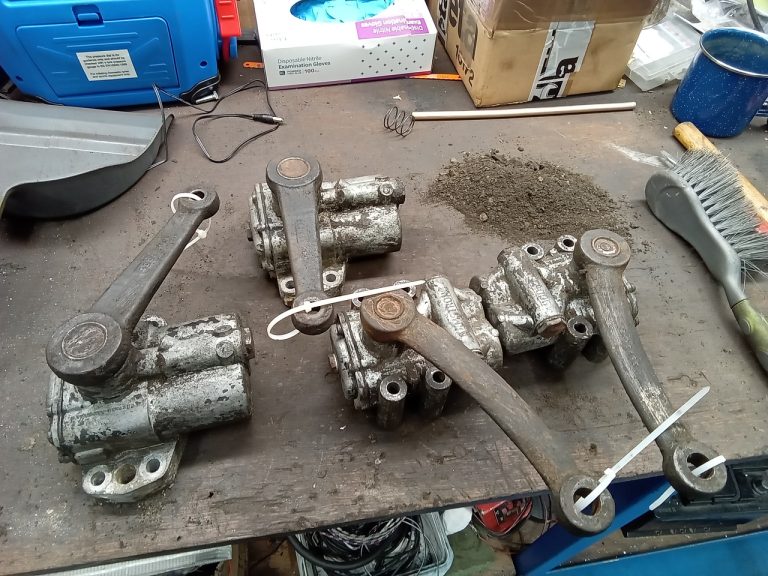
The shock absorbers for both Aston Martin DB2/4 projects have been stripped down by the workshop team to be sent away to the masters at
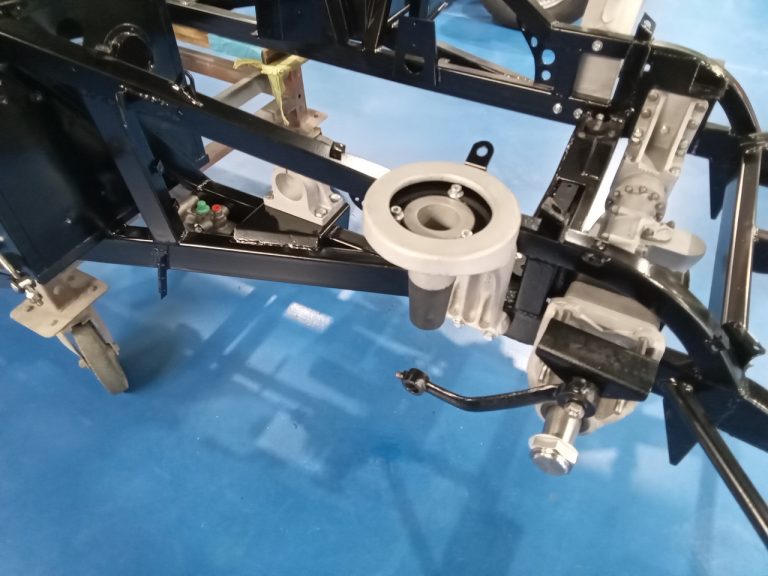
Recently, we have started to refit the suspension and steering, and some brake components that have either been new parts or refurbished original parts that

Clinton has been repairing the driver’s side rear wheel tubs on our 1953 Aston Martin DB2/4

The front suspension crossmember of our 1953 Aston Martin DB2/4 has been stripped and overhauled. New bearings and seals were fitted to the main part,

The chassis of our 1953 Aston Martin DB2/4 is back from powder coating so some small new parts have been refitted. The front suspension components

Our 1953 Aston Martin DB2/4 has made more progress in its restoration recently. Chris has painted the brake drums in satin dtm and the carbs

Our 1953 Aston Martin DB2/4 has continued its stay in the fabrication bay here at Bridge Classic Cars. Clinton has fabricated two rear inner wings

James has stripped the front suspension and hub parts of our 1953 Aston Martin DB2/4 ready for painting. Some of the bolts and pins were

Parts of our 1953 Aston Martin DB2/4 have been in the paint shop with technician Mauro where he has been painting them black. While Mauro

Classic Car Technician Neil has been prepping the chassis of our 1953 Aston Martin DB2/4. Alongside this, Clinton has been pulling dents out of the

Our 1953 Aston Martin DB2/4 has arrived back at our Suffolk HQ following its appointment with the media blasters. The body was carefully removed from

Christian has had our 1953 Aston Martin DB2/4 in the fabrication bay as he has been making some repairs on the chassis. While he was

Last week, James started to strip the running gear down of our 1953 Aston Martin DB2/4 for refurbishment. The axles have been broken down into

The last sections of our 1953 Aston Martin DB2/4 have been removed, the radiators and other engine ancillaries, the engine and gearbox removed, then the

The floors and interior of our 1953 Aston Martin DB2/4 were completely stripped, along with the front end and bonnet. Then the body fixings were

After removing the body of our Aston Martin DB2/4 yesterday, classic car technician James has continued his work on the strip down of this classic

The mechanical strip out of our 1953 Aston Martin DB2/4 has started at the rear of the car. The tailgate, lights, spare wheel carrier and
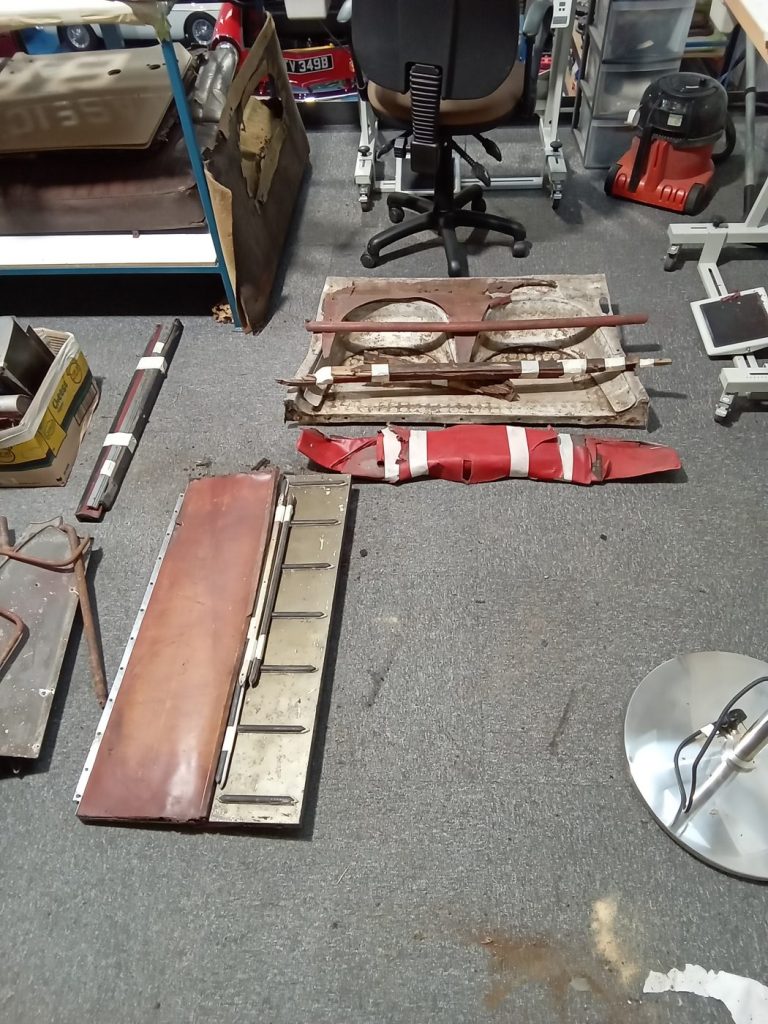
…and they say men can’t multitask! Brian’s day has been spent on 1953 Aston Martin’s today. He started off sorting out all interior parts, labelling
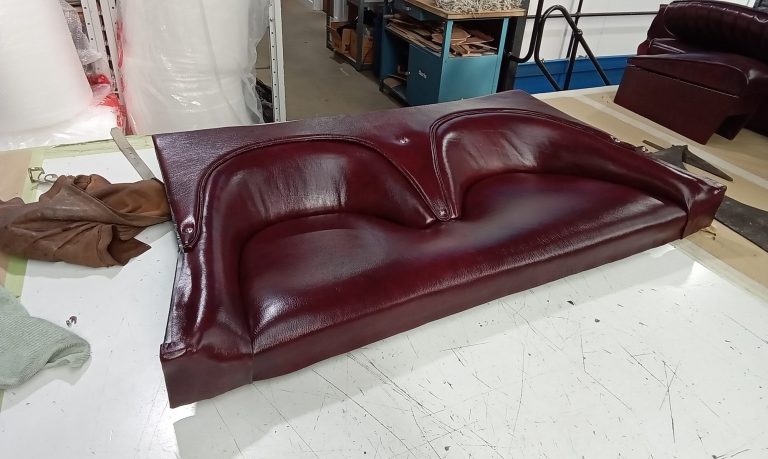
Yesterday and today, Lydia has been working on the rear seat of the Aston Martin DB2/4. ‘Chris has kindly painted the seat tray black for
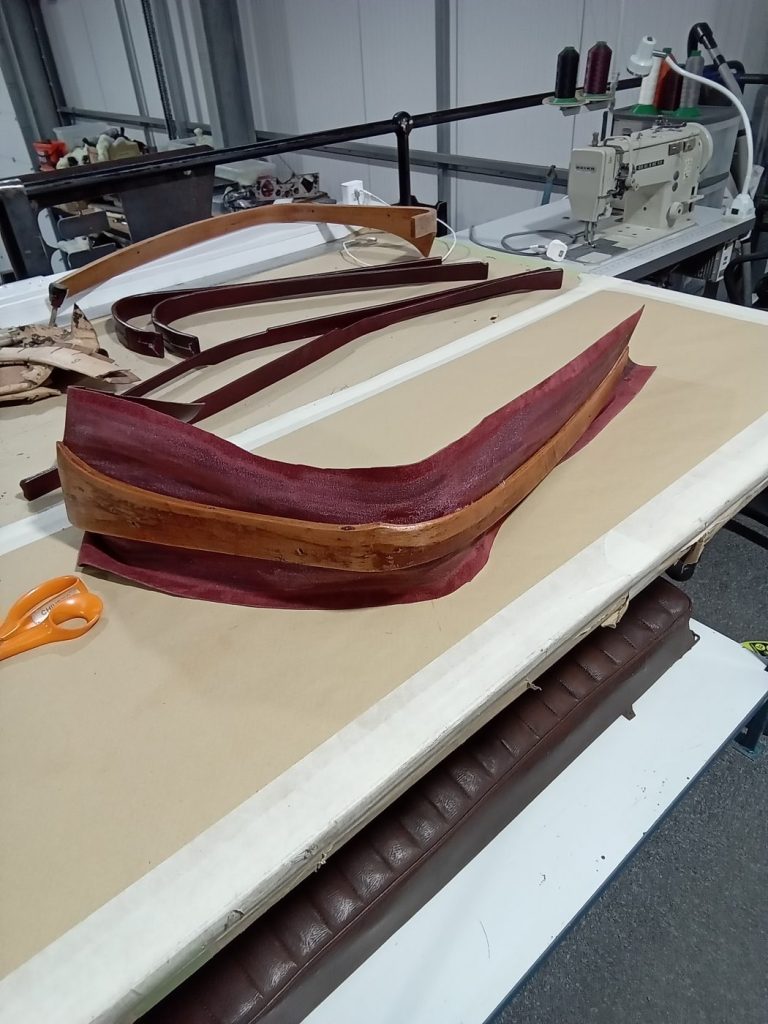
Cutting and gluing the leather to the front side window surround panels. Trimming onto the back of the panels, cutting and gluing leather onto the

Our paint team have been working on stripping back the bonnet of our 1953 Aston Martin DB2/4. As the car begins its restoration journey at

Our paint technician Chris has been working on getting some of the first pieces of the 1953 Aston Martin DB2/4 into paint. First up on
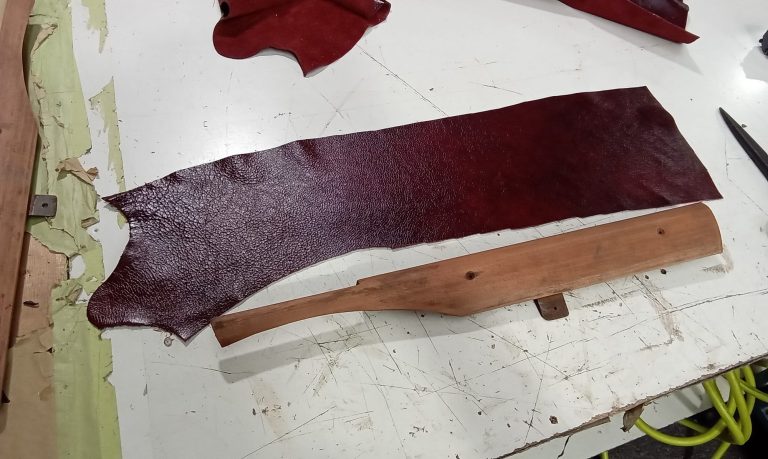
Brian and Lydia have continued their work on our 1953 Aston Martin DB2/4. Using the new plywood panels that Brian had cut out for her,
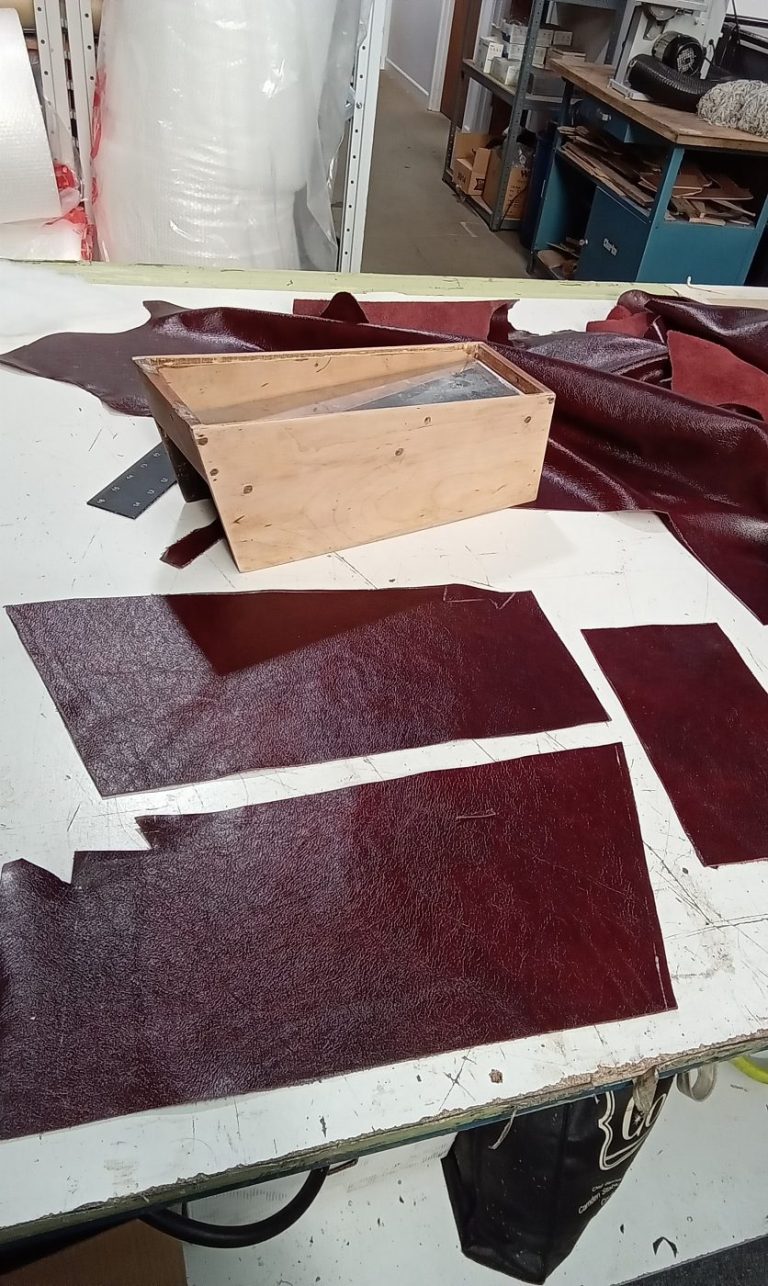
Brian and Lydia have been working on our 1953 Aston Martin DB2/4, specifically the centre console and rear panels. Using the existing material from the

Although it has been in a workshop for a little while now, and our restoration teams have begun the process of bringing this wonderful early



Our restoration team have been making amazing progress on our 1953 Aston Martin DB2/4 at our Pettistree workshops.
Our technician Steve, who is the main technician on the project, has been getting the running gear and brake system back onto the newly refinished chassis of the classic Aston Martin. He has fitted up the original hubs in order to begin work on the brake system with the drums and all hardware in place to begin to map out the intricate network of brake pipes to connect everything up when the time comes.


Our technician Steve has been working on fitting up the brakes to our 1953 Aston Martin DB2/4.
The first step in the process is for Steve to make up the new metal pipework and fit the necessary flexi-hoses to the system.
Here are Steve’s notes relating to his work on our 1953 Aston Martin DB2/4:






The new fuel pickup for our 1953 Aston Martin DB2/4 fits other models so has longer pipes than needed. Steve has modified it so it now fits the tank on our car.


Paintshop manager Chris has been prepping the interior and exterior of the body of our 1953 Aston Martin DB2/4 ready for epoxy primer and paint.























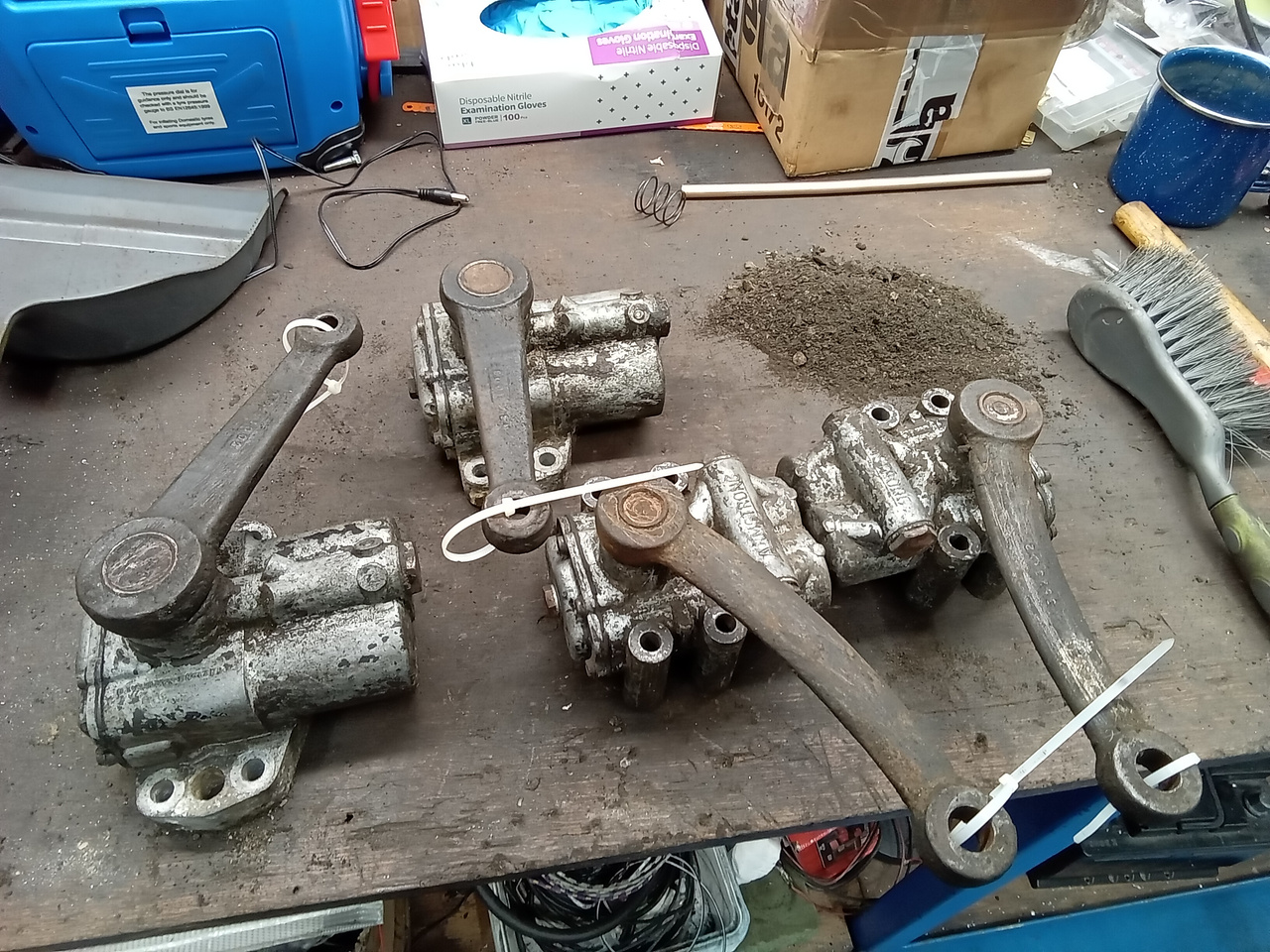
The shock absorbers for both Aston Martin DB2/4 projects have been stripped down by the workshop team to be sent away to the masters at V&C Engineering for refurbishment for the projects.
Both the Coupe and Drophead’s shock absorbers will be inspected, cleaned up and rebuilt by the team before heading back to our Suffolk HQ to be fitted to the relevant cars.
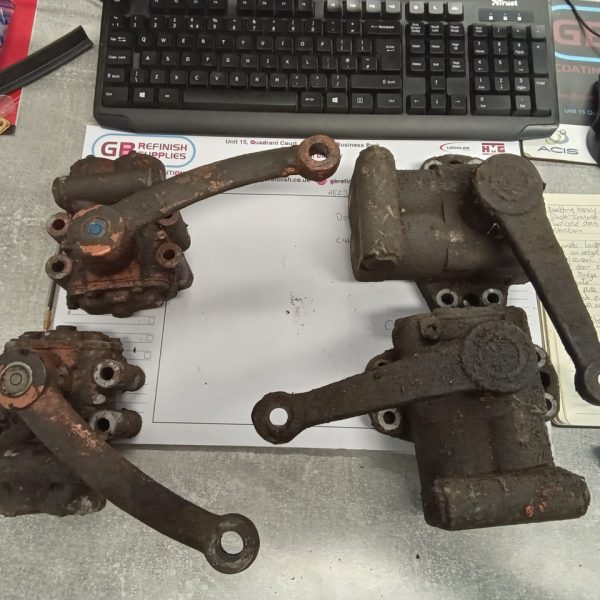
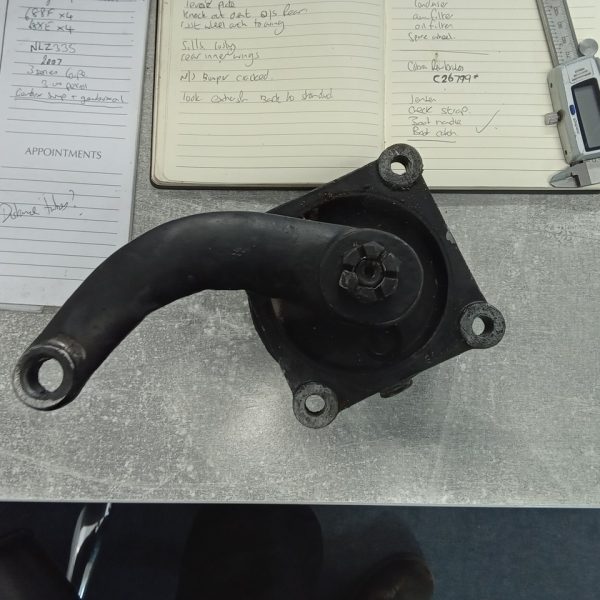
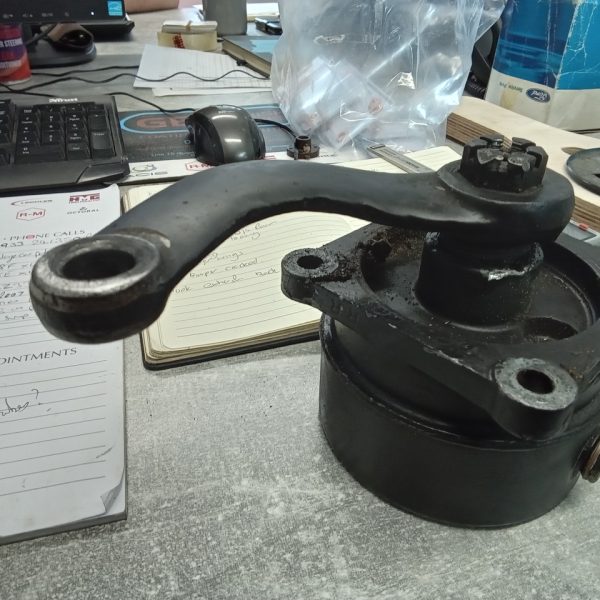
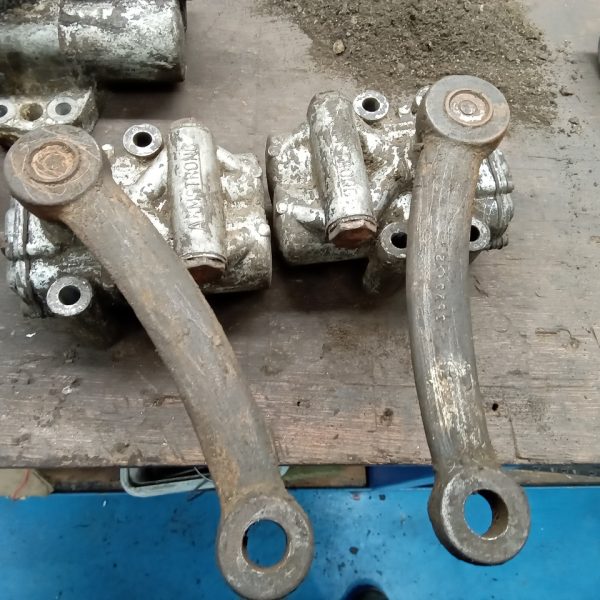
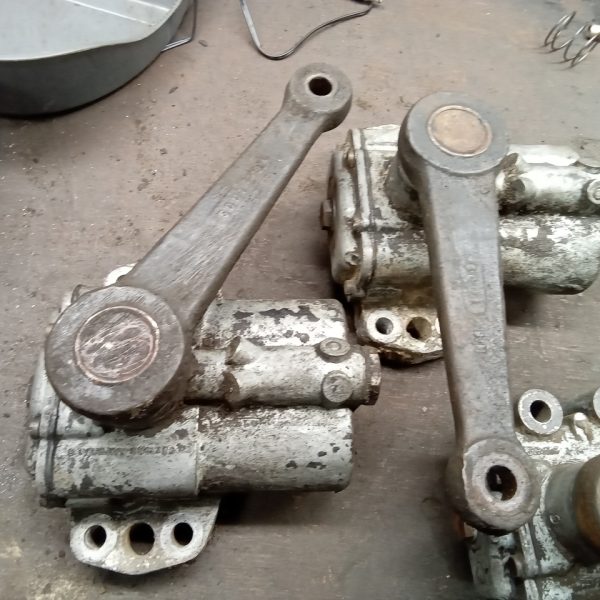
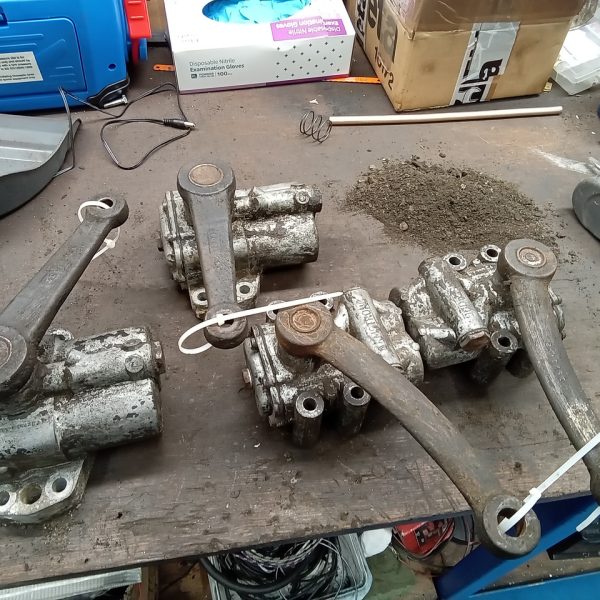
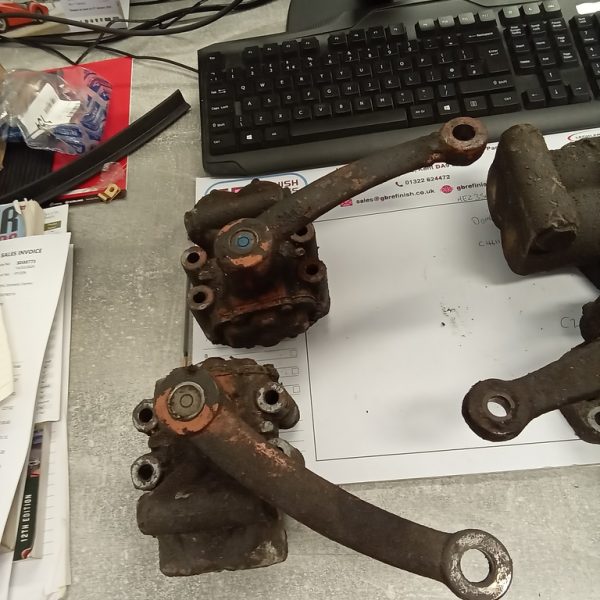
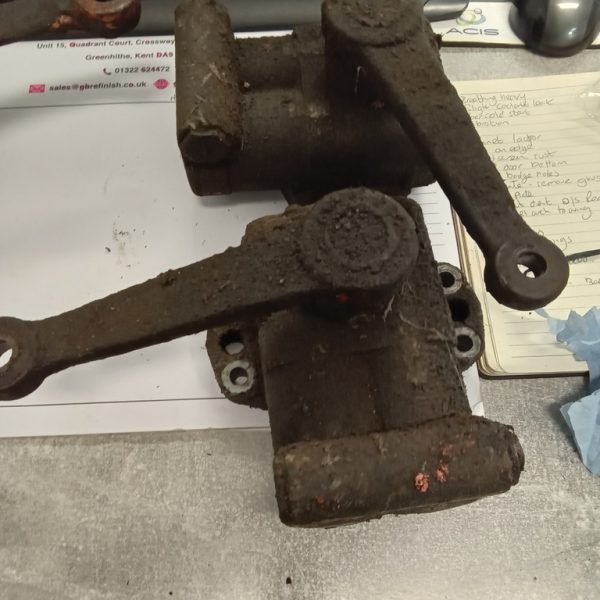
Recently, we have started to refit the suspension and steering, and some brake components that have either been new parts or refurbished original parts that we have overhauled to our 1953 Aston Martin DB2/4.
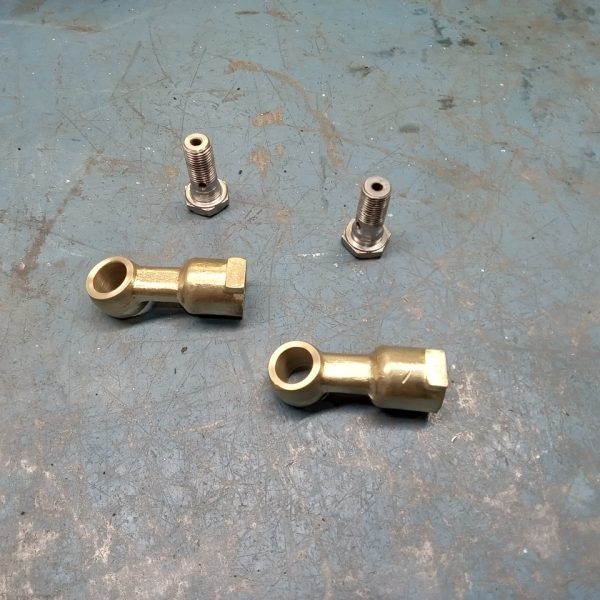

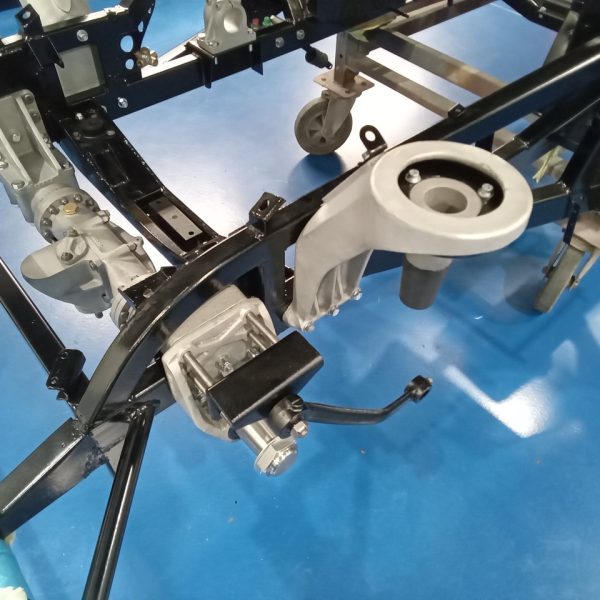

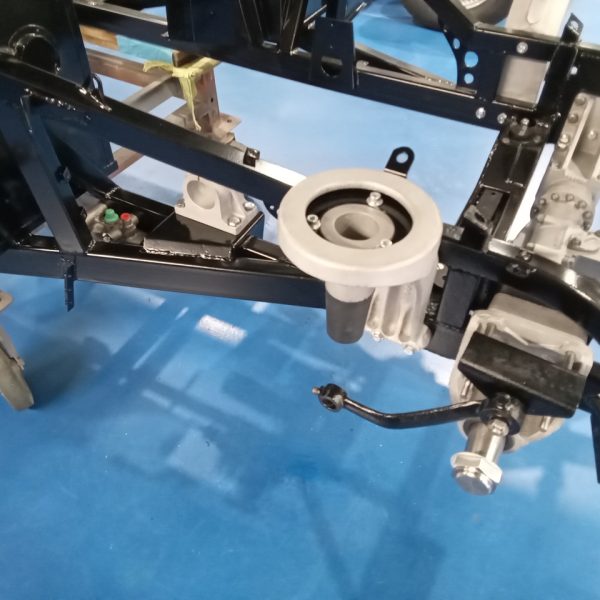
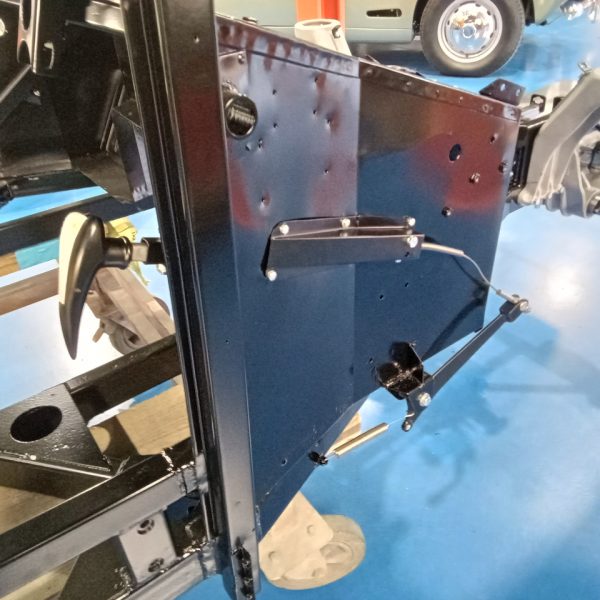

Clinton has been repairing the driver’s side rear wheel tubs on our 1953 Aston Martin DB2/4


















The front suspension crossmember of our 1953 Aston Martin DB2/4 has been stripped and overhauled. New bearings and seals were fitted to the main part, then the steering idler was stripped and new parts fitted. Now it has been masked up for a clear coat with the other aluminium parts, this will stop any future corrosion and protect the parts for the future.
Some parts of the suspension were also painted in black satin.










The chassis of our 1953 Aston Martin DB2/4 is back from powder coating so some small new parts have been refitted. The front suspension components have been painted, and new bushes, parts and bearings fitted ready for attaching. We are waiting for the rear axle to be completed, but in the mean time have been recommissioning the brake system, ready to be refitted once it has arrived. We have ordered the nearside now to enable us to build up steering/suspension and brakes to the chassis while the body repair continues.
Chris has also been making some repairs to the chassis.




































Our 1953 Aston Martin DB2/4 has made more progress in its restoration recently.
Chris has painted the brake drums in satin dtm and the carbs have been finished too.














Our 1953 Aston Martin DB2/4 has continued its stay in the fabrication bay here at Bridge Classic Cars.
Clinton has fabricated two rear inner wings and removed the old rear inner wheel tubs and fabricated two new panels.
Chris has also painted some of the car’s components in DTM satin.

































James has stripped the front suspension and hub parts of our 1953 Aston Martin DB2/4 ready for painting. Some of the bolts and pins were seized and had to be drilled out to release them. Once the parts are prepped and cleaned, new bushes and bearings can be fitted ready for reassembly.








Parts of our 1953 Aston Martin DB2/4 have been in the paint shop with technician Mauro where he has been painting them black.
While Mauro was doing this, Clinton was fabricating new parts and repairing the driver’s side front sill.
























Classic Car Technician Neil has been prepping the chassis of our 1953 Aston Martin DB2/4. Alongside this, Clinton has been pulling dents out of the car and repairing them.
Once the chassis was fully prepped, Tony took it to be powder coated.

















Our 1953 Aston Martin DB2/4 has arrived back at our Suffolk HQ following its appointment with the media blasters.
The body was carefully removed from the chassis of the 1950’s GT previously by our workshop technicians and carefully transported to a local blasting company to carefully remove the Claret paint as well as exposing any areas which will need attention by the team here at the Bridge Classic Cars restoration workshops.









The body arrived back at our workshops earlier this week and was taken straight into our in-house fabrication shop for our expert team of fabricators to work on getting this rare and unique GT car back into better than new shape.
The team have begun to get the body onto the framing jig to get it ready for the delicate and highly-skilled work of repairing the areas affected by 71 years of being used and stored.





Christian has had our 1953 Aston Martin DB2/4 in the fabrication bay as he has been making some repairs on the chassis.
While he was doing this, many of the parts are now being stripped, cleaned and checked ready for painting. New bushes and other small parts have been ordered, and when the parts have been painted, the sub assemblies can then be rebuilt ready to be fitted to the chassis and body.




















Last week, James started to strip the running gear down of our 1953 Aston Martin DB2/4 for refurbishment. The axles have been broken down into component parts ready for blasting/cleaning and then painting, any worn or damaged parts have been located and will be replaced on re-assembly. The brake and clutch pedal unit has also been stripped and will be refurbished ready for when the chassis is back so the rebuild can start.
















The last sections of our 1953 Aston Martin DB2/4 have been removed, the radiators and other engine ancillaries, the engine and gearbox removed, then the chassis and bulkhead were completely stripped of suspension, steering and brake components, along with wiring loom and pipes/fittings.
The chassis can now go off to be stripped and checked before painting and reassembly in the new year.





















The floors and interior of our 1953 Aston Martin DB2/4 were completely stripped, along with the front end and bonnet. Then the body fixings were removed and the body was carefully taken off for blasting/paint removal.























After removing the body of our Aston Martin DB2/4 yesterday, classic car technician James has continued his work on the strip down of this classic Aston.
The front doors and windows have now been stripped out ready for refurbishment, all parts will be cleaned, sorted, painted or replaced where necessary before refitting the newly painted doors and body, when they are ready.




















The mechanical strip out of our 1953 Aston Martin DB2/4 has started at the rear of the car. The tailgate, lights, spare wheel carrier and fuel tank have all been removed. Classic car technician James actually found some of the original black paint on the car too!
The dashboard and clocks have also been stripped out ready for refurbishment. James made sure that the wiring was labelled for reference and pictures were taken to aid in reassembly later on.
Brian and Lydia have also been working on the interior of our rare Aston. They removed the old covers from the front seats before going on to remove the foam and runners as well. The seats from this vehicle were in fairly bad condition and did not want to come apart easily. Lydia ended up grinding away a lot of the screw heads to be able to remove the seat back from the base. She then cleaned up the interior dash cubby boxes and the door pockets too.
Brian removed the metal runners from the base of the seats, and the base foams. He then removed the carpet from the back of the squab seat, removed the old cover & foams, removed all side wood sections, removed frames, and cut out new side wood sections & new backboards.
Perhaps the most obvious change to our DB2/4 is that the body has now been removed. This is a big step in the strip down and the whole team is excited to see this beautiful car continue to make progress.








































































…and they say men can’t multitask! Brian’s day has been spent on 1953 Aston Martin’s today. He started off sorting out all interior parts, labelling up, bagging up all of the small parts of the Aston martin DB2/4 Drophead Coupe.
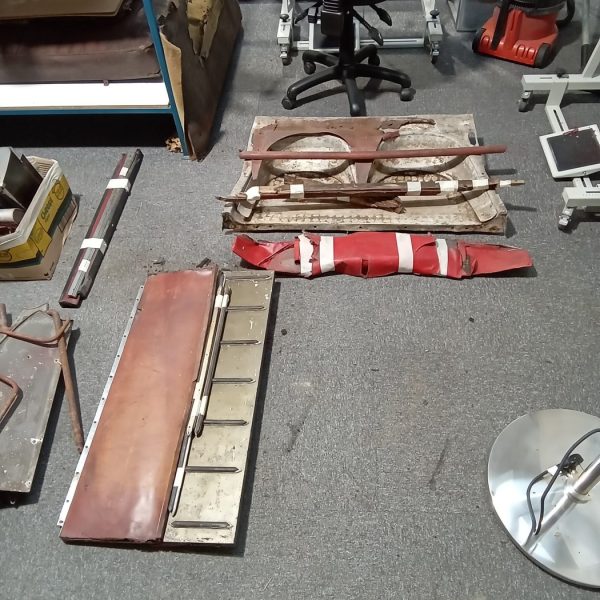
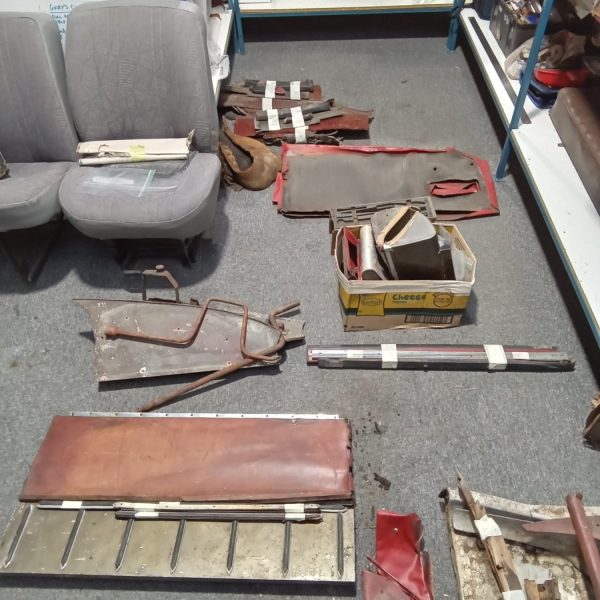
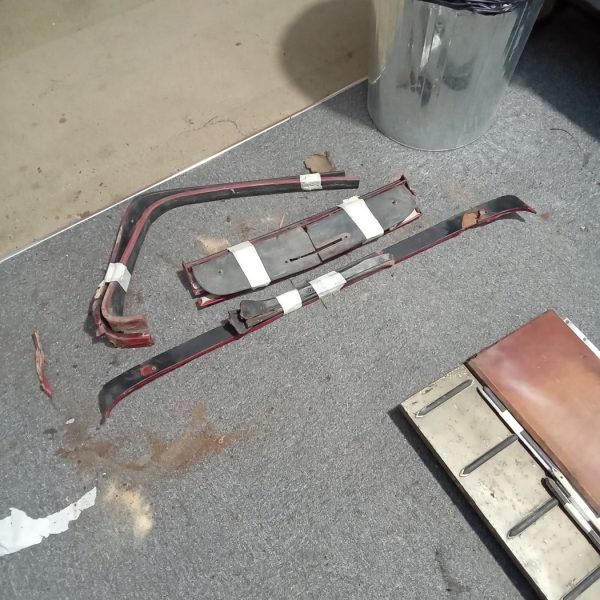
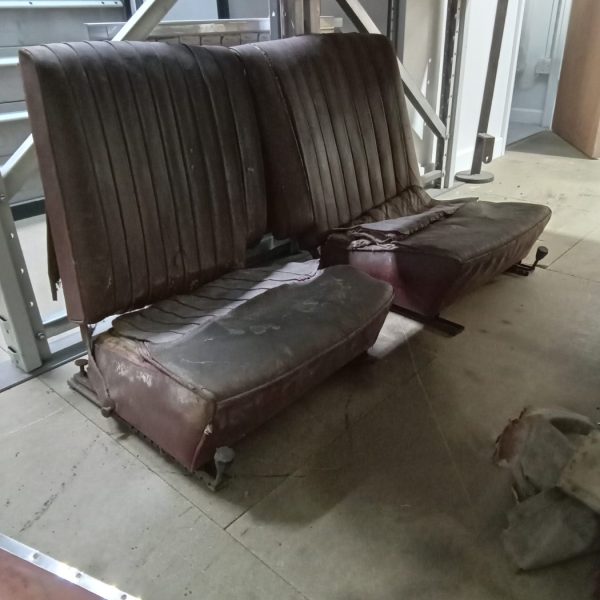
Swiftly followed by work on our other 1953 Aston Martin DB2/4. He’s a little further forward with the interior of this one as he fits new clips to the door panels, cutting out foam, gluing the foam to boards, trimming the foam to size, cutting and gluing the leather to the door panels, gluing and trimming onto the back of the boards as well as turning the leather around the pocket holes.
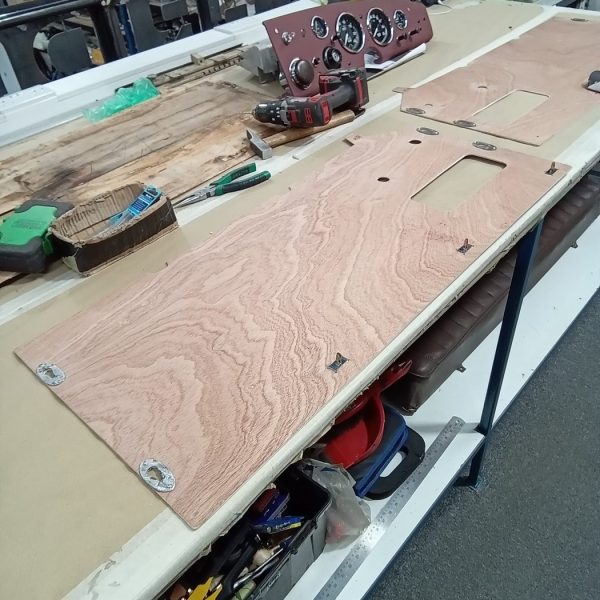
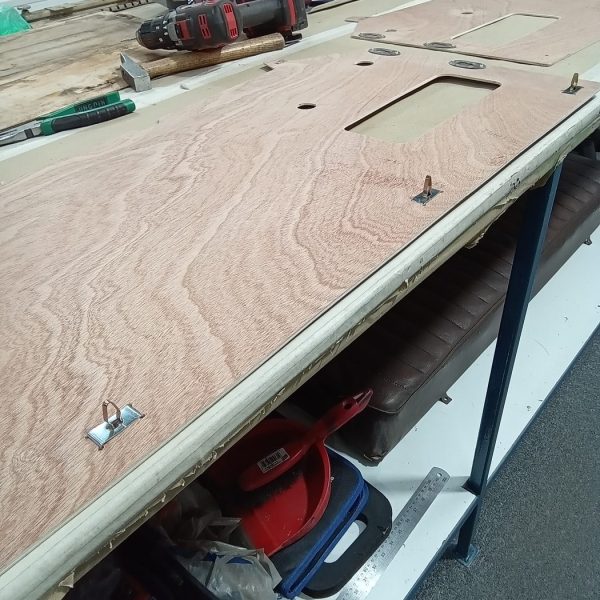
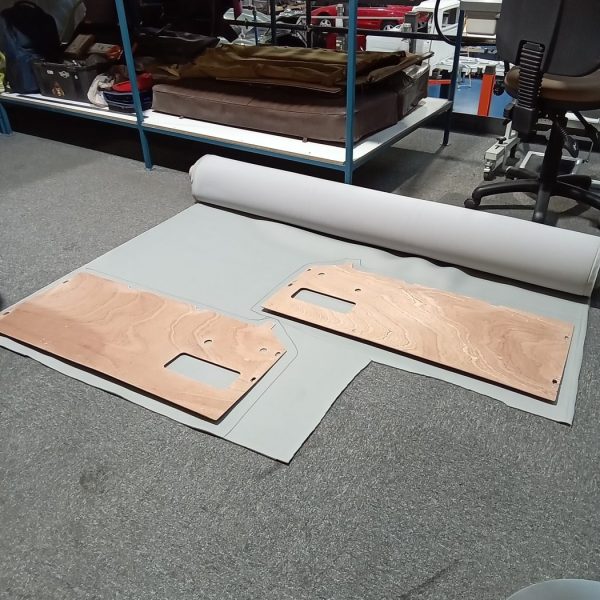
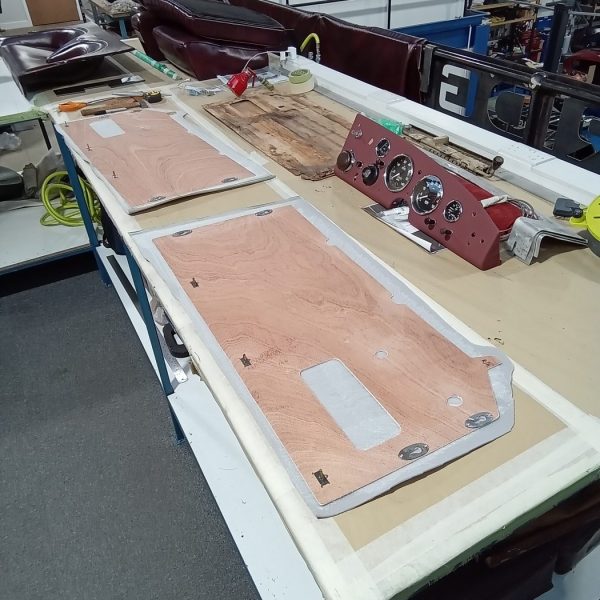
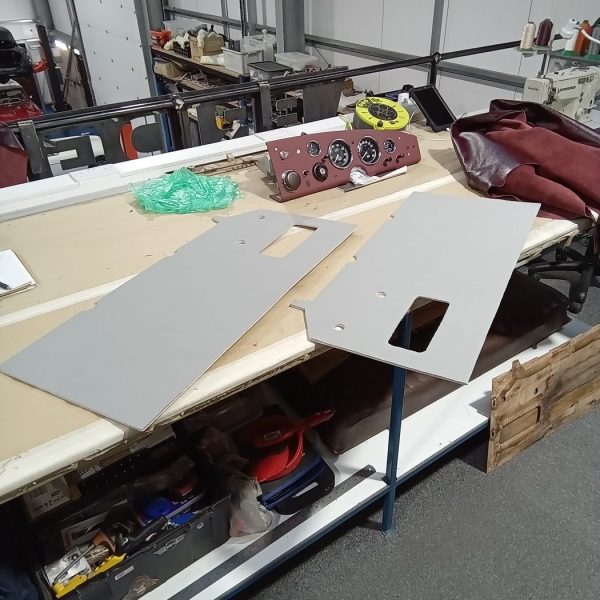
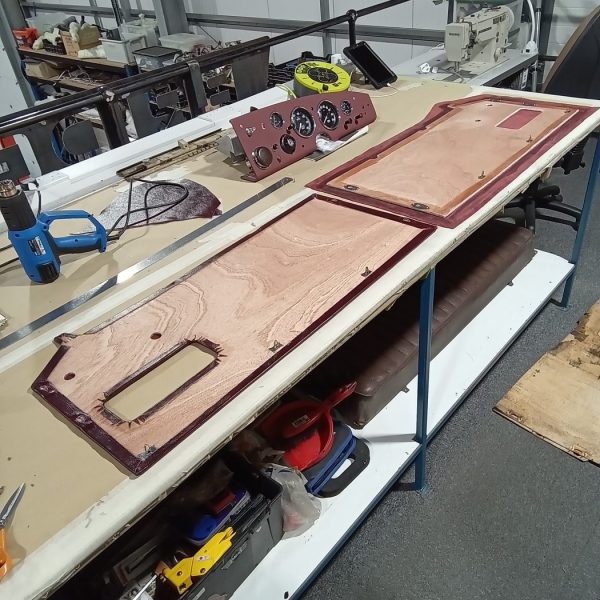
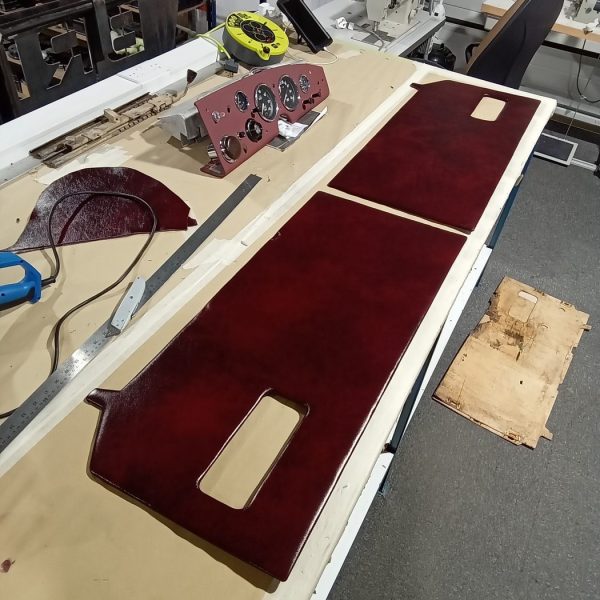
Yesterday and today, Lydia has been working on the rear seat of the Aston Martin DB2/4.
‘Chris has kindly painted the seat tray black for me, and stone chipped the underside, as this part actually forms the bottom of the car and is exposed to all the elements the road can throw at it. Firstly , I re-attached the foam that we removed, and this needed some remedial repairs as the top surface was uneven. Should I have left this, it would have shown through the new leather cover, and it would also have been possible to feel the imperfections beneath. I filled in the deepest dents with some thing scrim foam and then laid a complete piece on top before adding a layer of polyester wadding to ensure that the seats remained soft and comfortable. This also works well at hiding any last imperfections that may remain! Then, I applied the new leather piece which forms the part that the passengers sit on.’
The next part to complete was the backrests, which were a little more tricky. These have to have the fabric half fitted, then they get riveted to the seat tray, then the rest of the fabric is stretched up and over and glued to the seat tray.
Brian has already repaired the foam on these so Lydia added a layer of wadding to make them softer. The leather was cut in 2 parts and sewn together, then fitted to the seat with contact adhesive.
Using heat really helped to soften the leather and made it a lot easier to fit the covers on these.
The final piece is the board that rests on top. This is a simple piece of cardboard, with a thin layer of foam on , then covered in leather. Finally, a piece of piping is applied to the edge to close the gap between the board and the seat underneath.
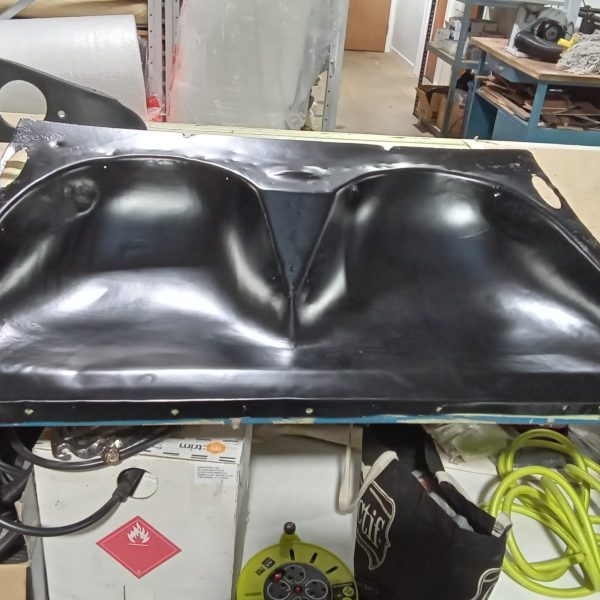
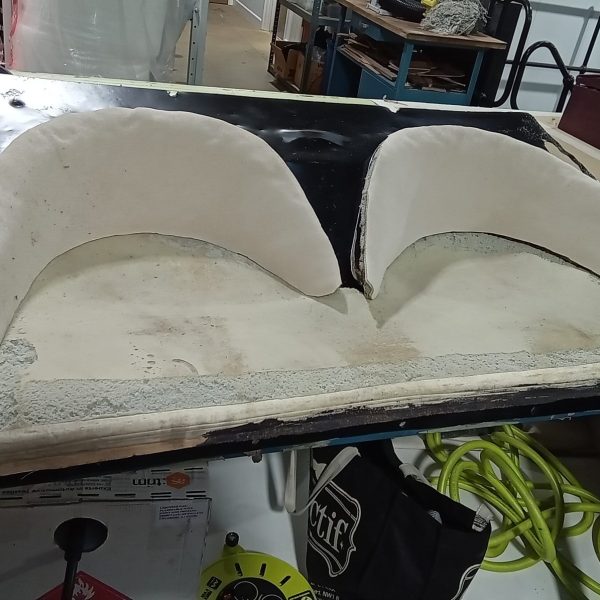
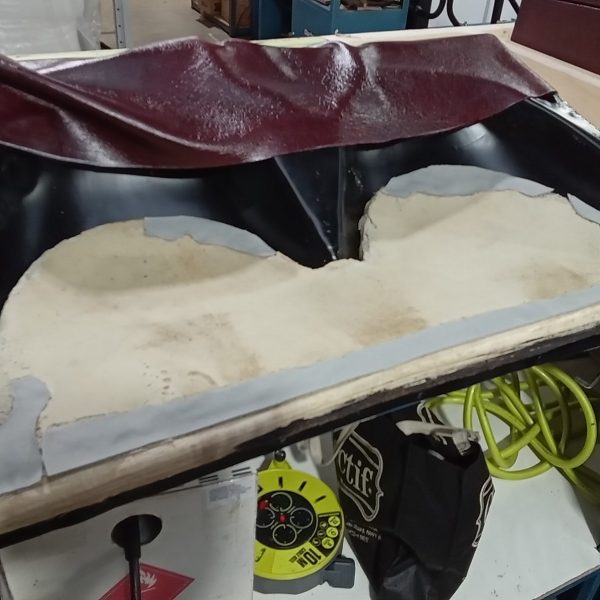
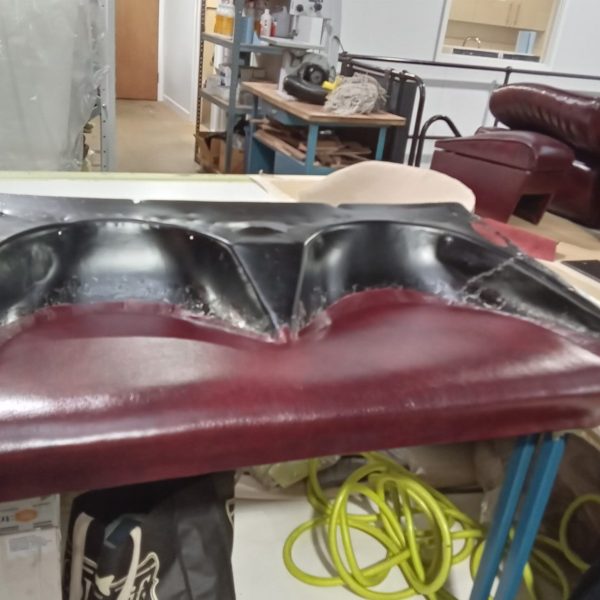
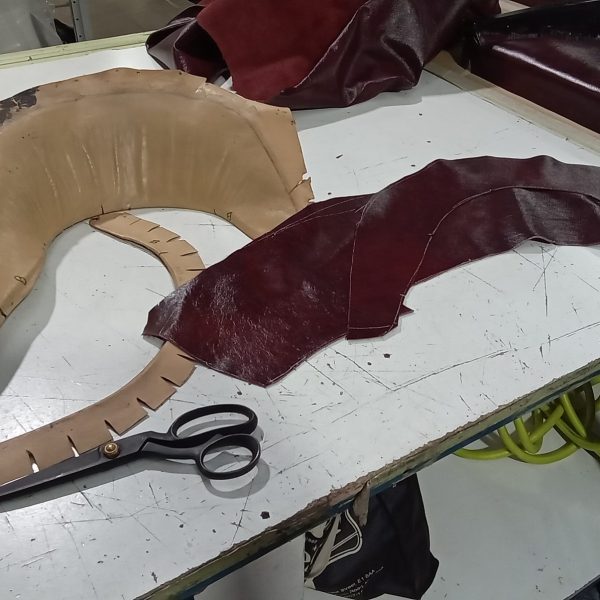
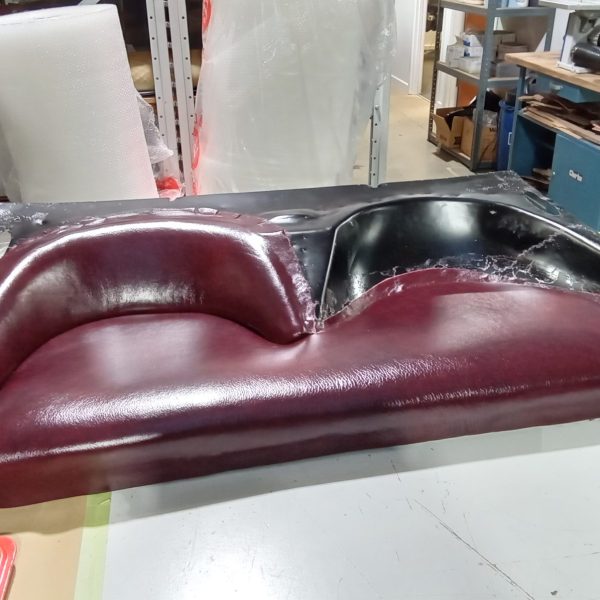
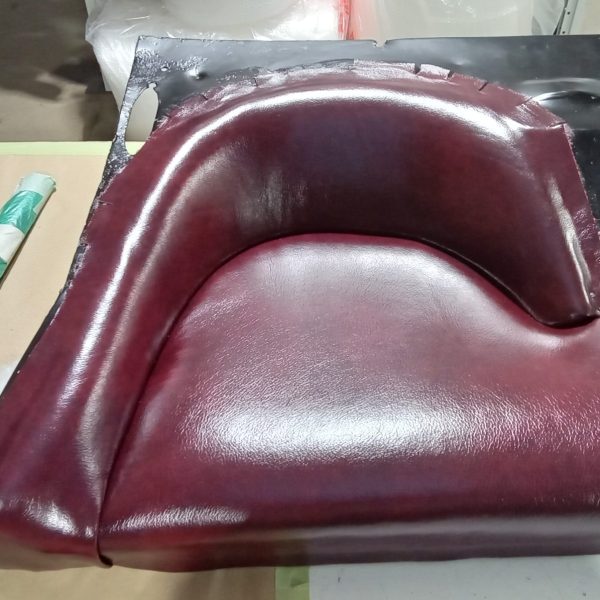
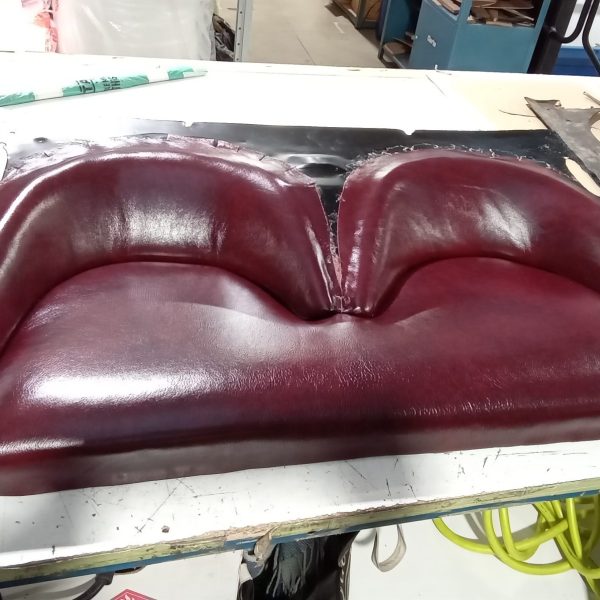
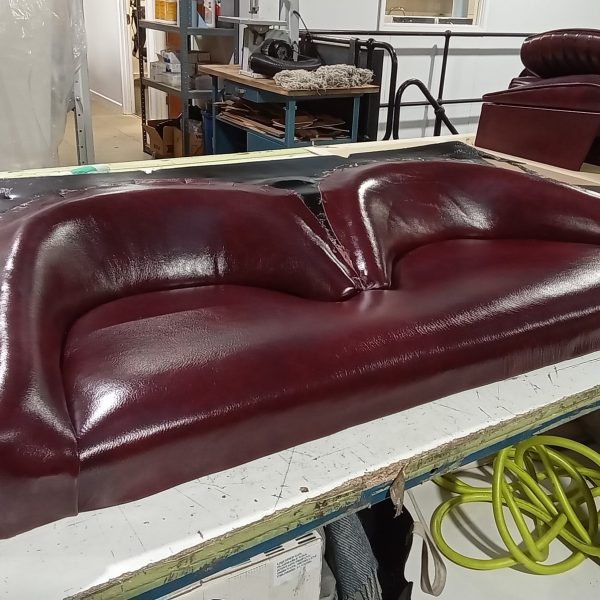
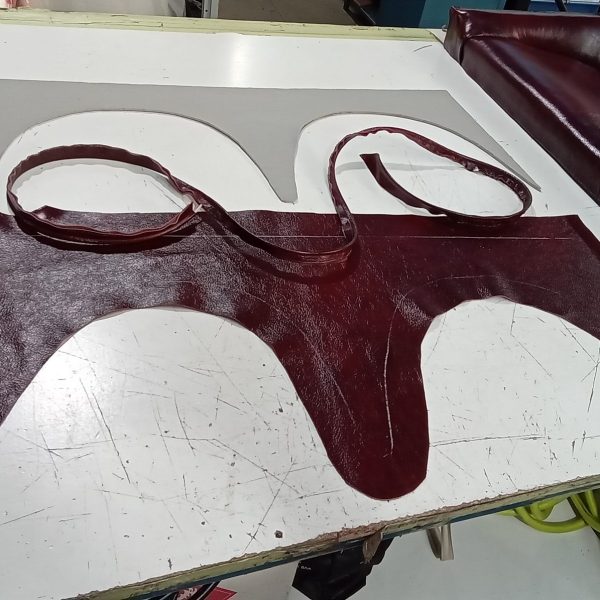
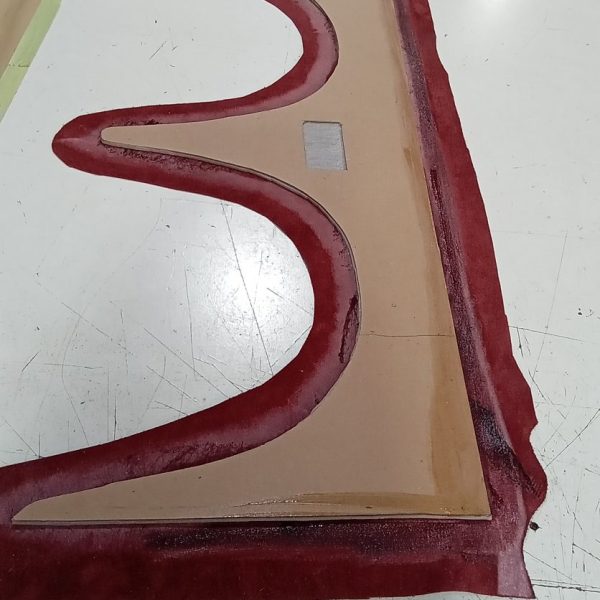
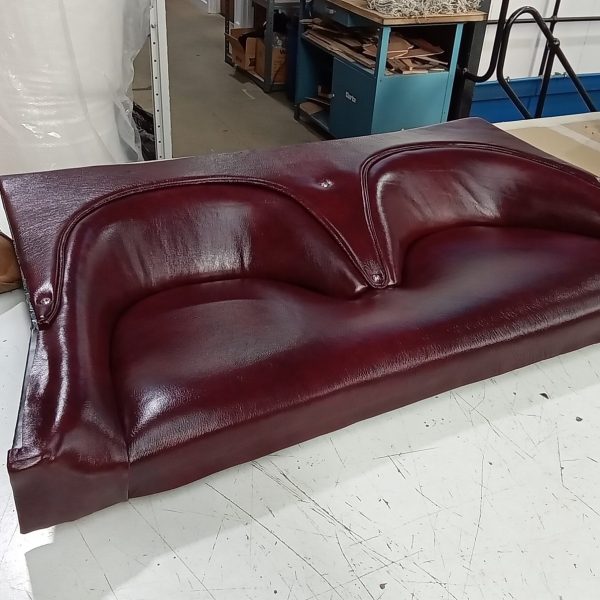
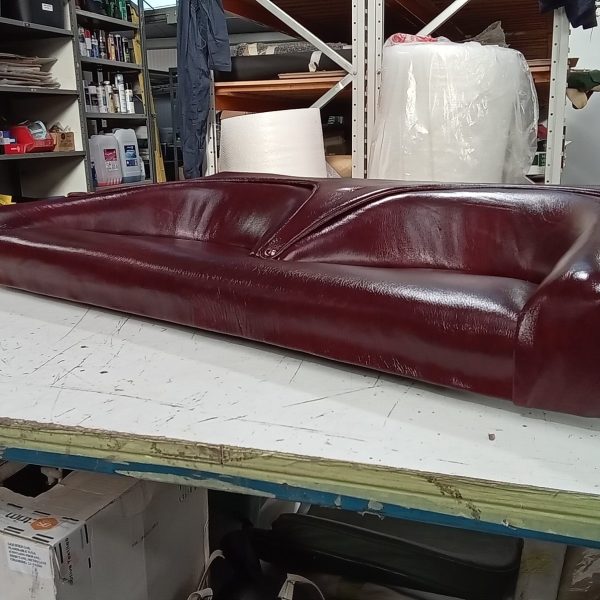
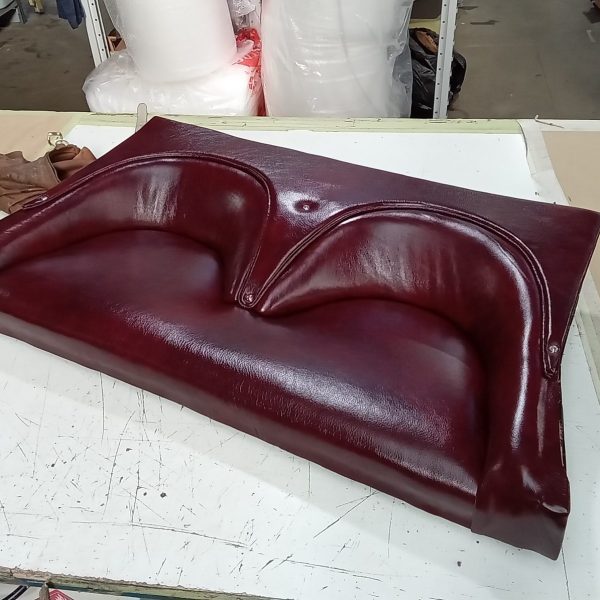
Cutting and gluing the leather to the front side window surround panels. Trimming onto the back of the panels, cutting and gluing leather onto the front window surround panels. Trimming onto the back panels, filing out the holes for the door panel brackets, fitting the door panel brackets.
Cutting and gluing leather to the door pockets and pocket side panels, screwing side panels to the pockets, gluing leather to the rear window surround panels.
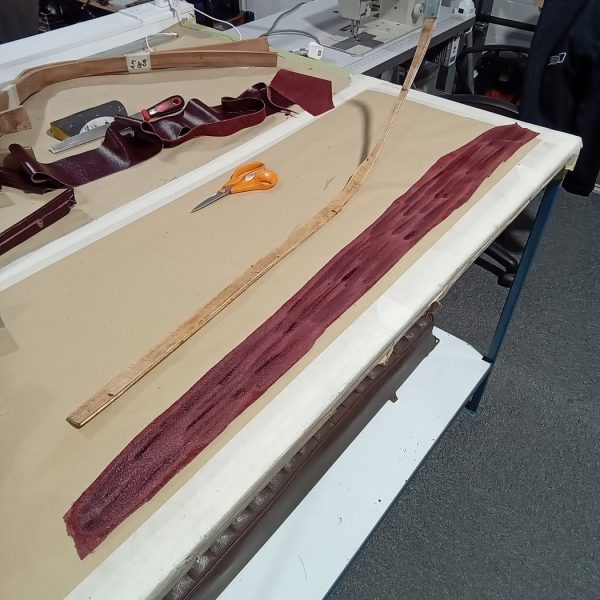
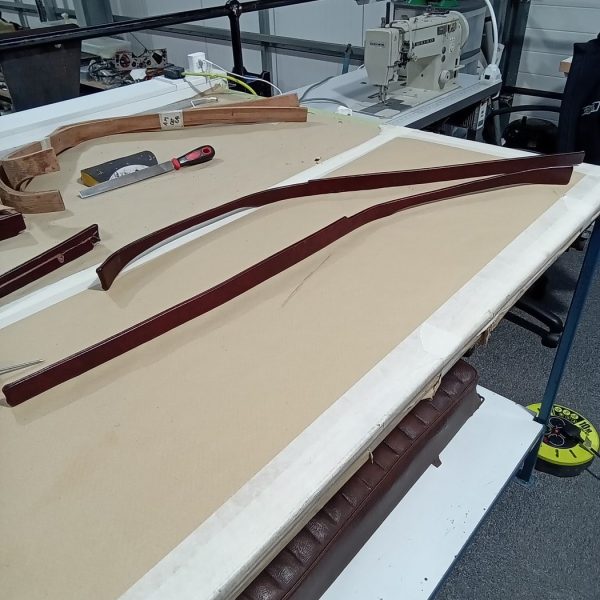
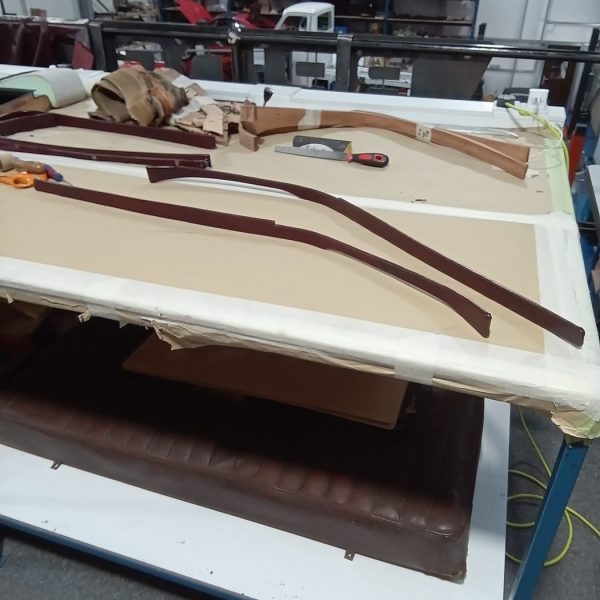
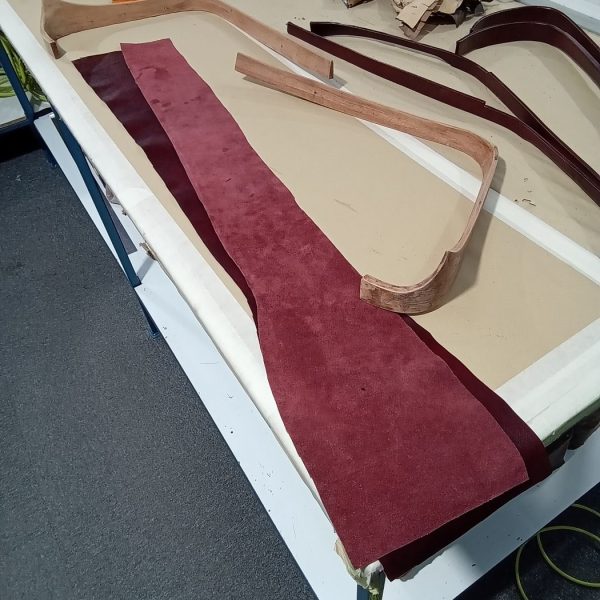
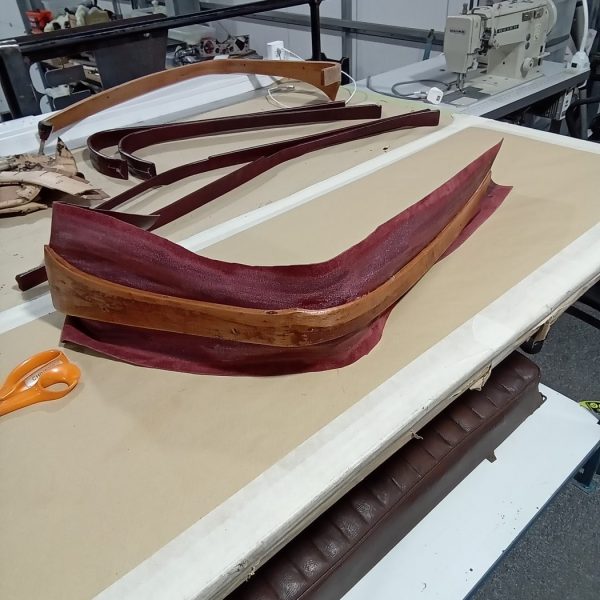
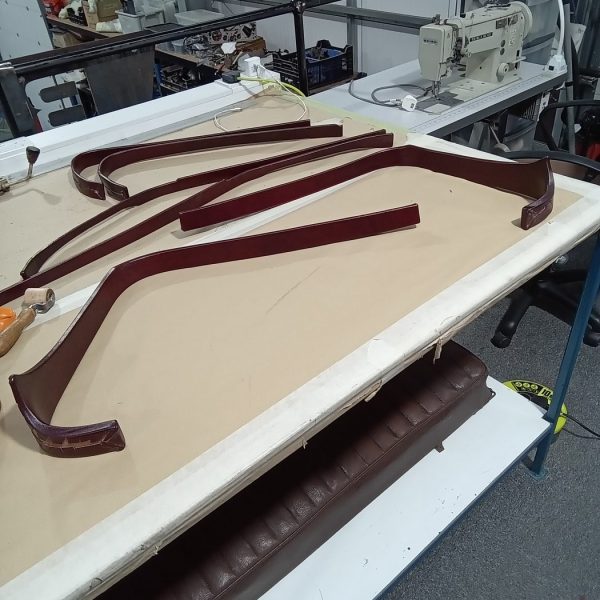
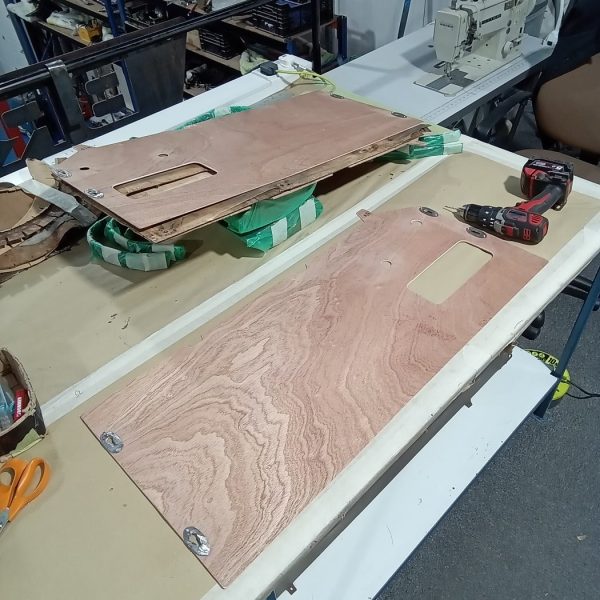
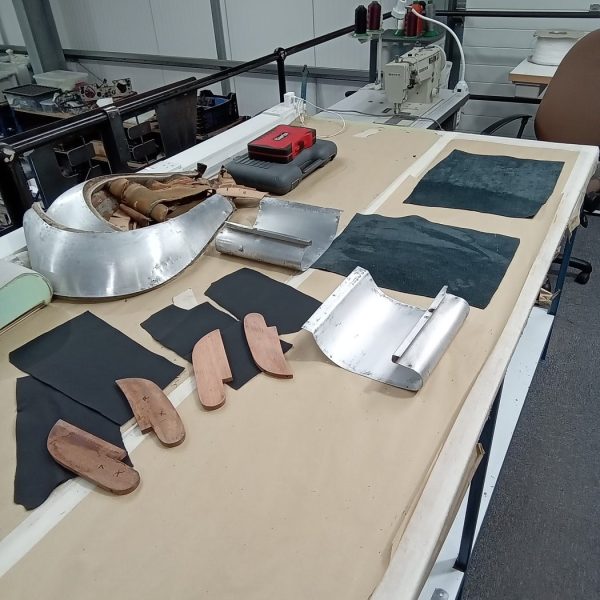
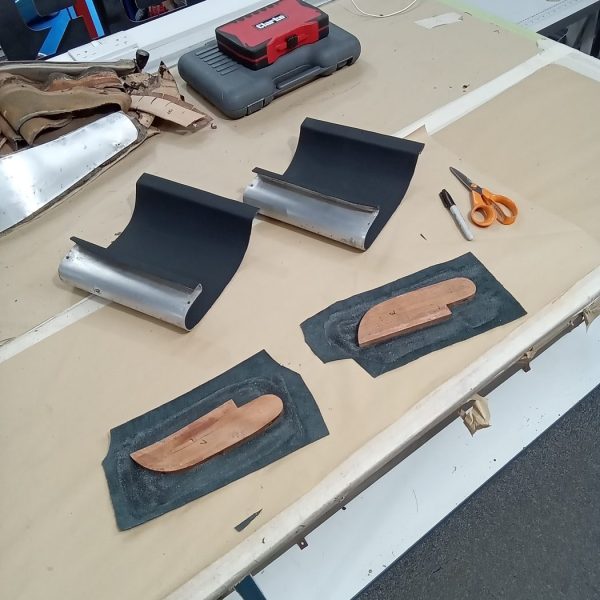
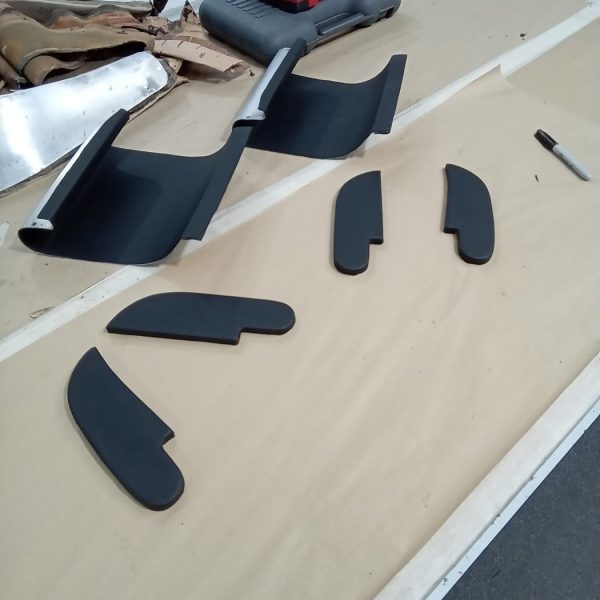
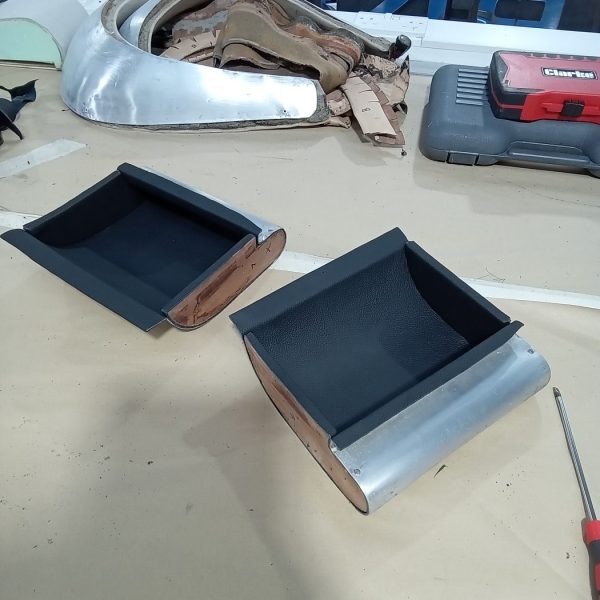
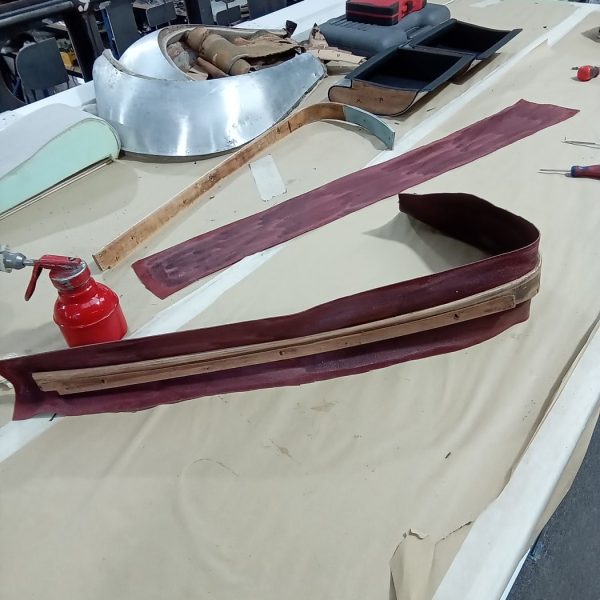
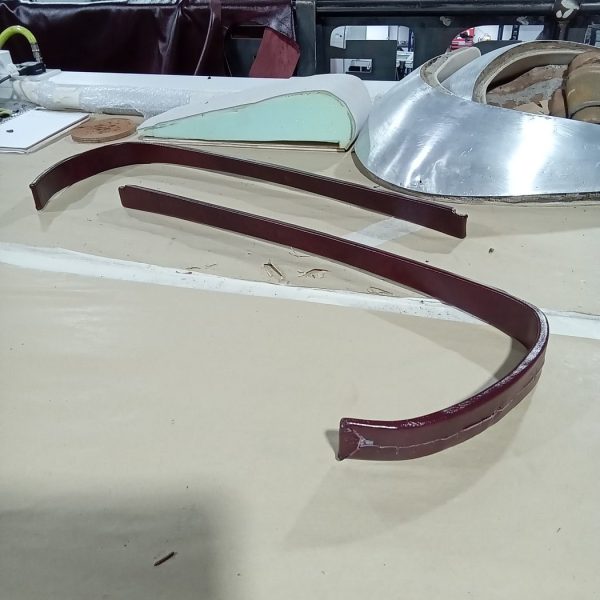

Our paint team have been working on stripping back the bonnet of our 1953 Aston Martin DB2/4.
As the car begins its restoration journey at our Suffolk HQ, the team have begun to peel back the layers of this incredible 50s sports car while also take extra car to preserve and protect the handmade metalwork underneath.
Chris has been working through the layers of paint to get the car back to bare metal for the team to evaluate the material underneath.







Our paint technician Chris has been working on getting some of the first pieces of the 1953 Aston Martin DB2/4 into paint.
First up on the rack, is the rear seat pan for the classic GT car. After being meticulously stripped back to bare metal, the team hung it on one of our paint racks to refinish this rear seat piece in satin black.

Brian and Lydia have continued their work on our 1953 Aston Martin DB2/4.
Using the new plywood panels that Brian had cut out for her, Lydia covered them in leather at the top. The bottom part is a piece of carpet with bound edges, so she also cut and sewed this , then attached it to the panel with staples.
The wooden-shaped pieces are simply covered directly with leather, so Lydia cut the material out and glued it straight onto them.
Parts of the interior were painted black before Brian repaired the tailgate top trim panel as well as the headliner.
Lydia then covered the pre-made wooden panels in headlining fabric. Some panels required a small amount of padding, so she added some scrim foam to these before covering them in wool headlining material.
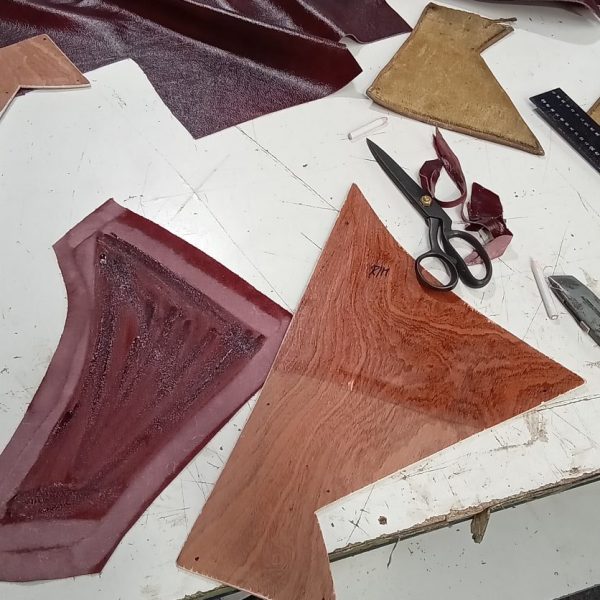
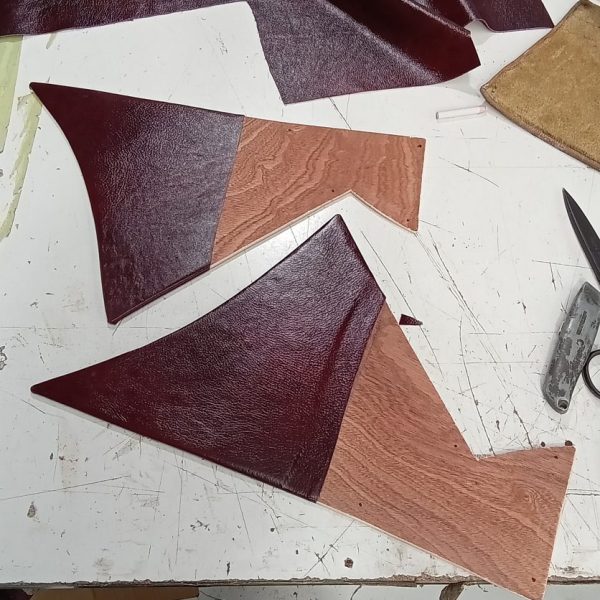
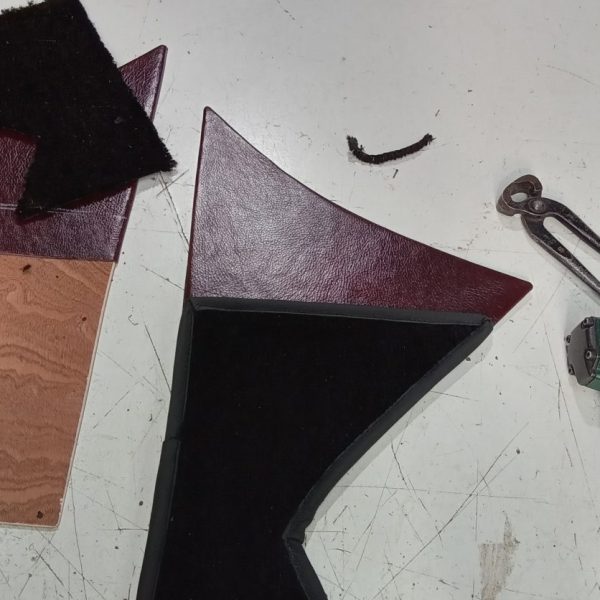
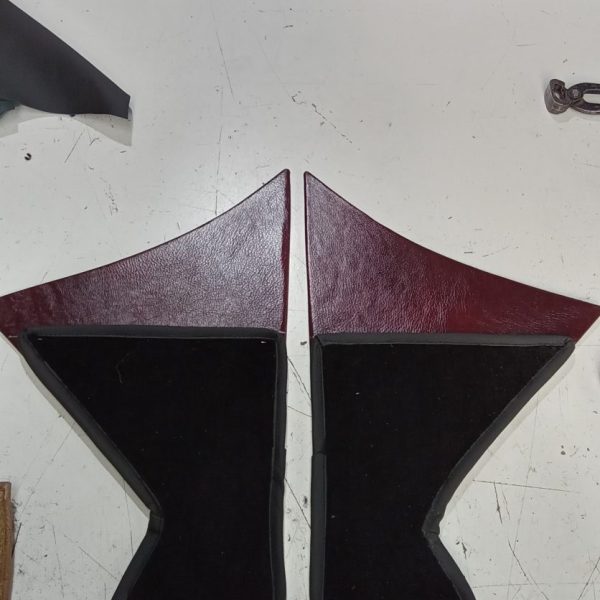
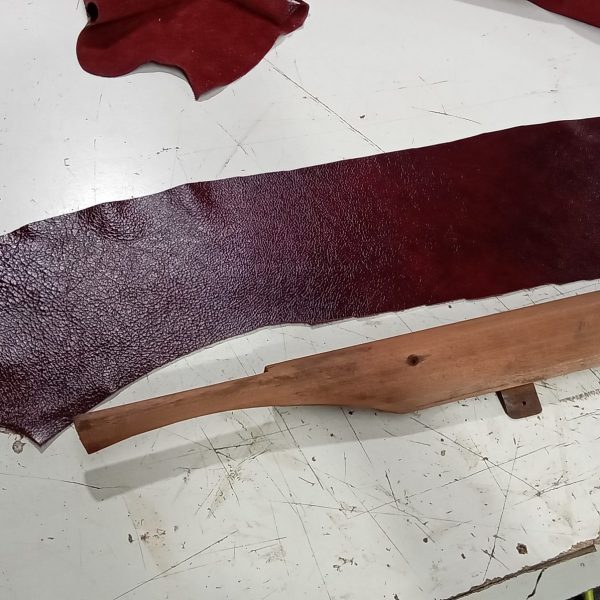
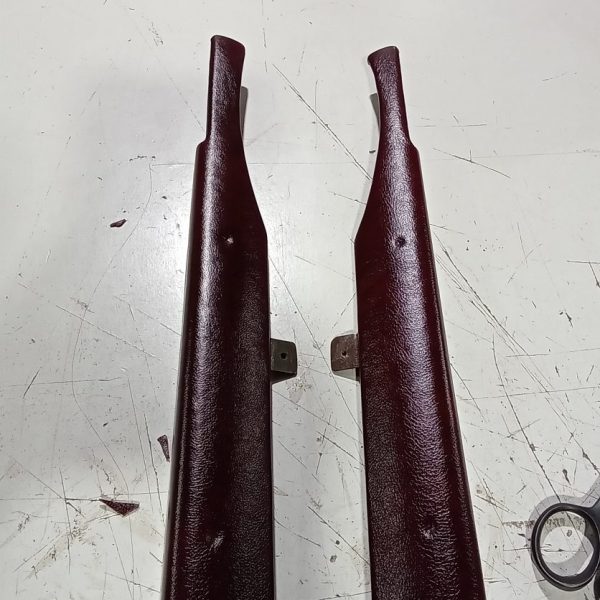
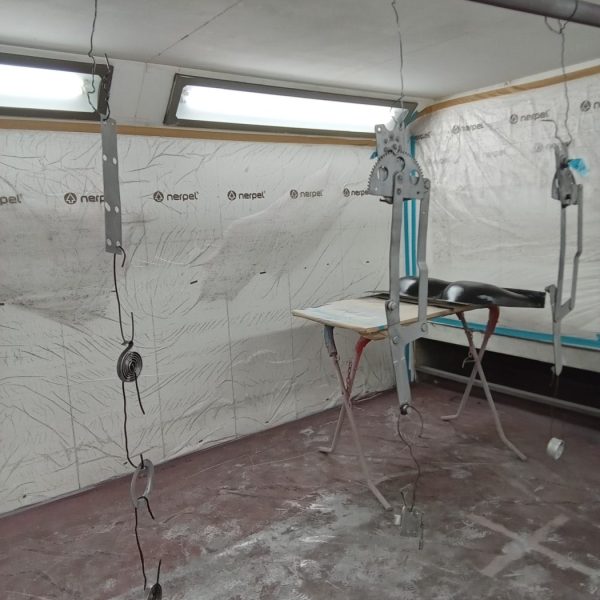
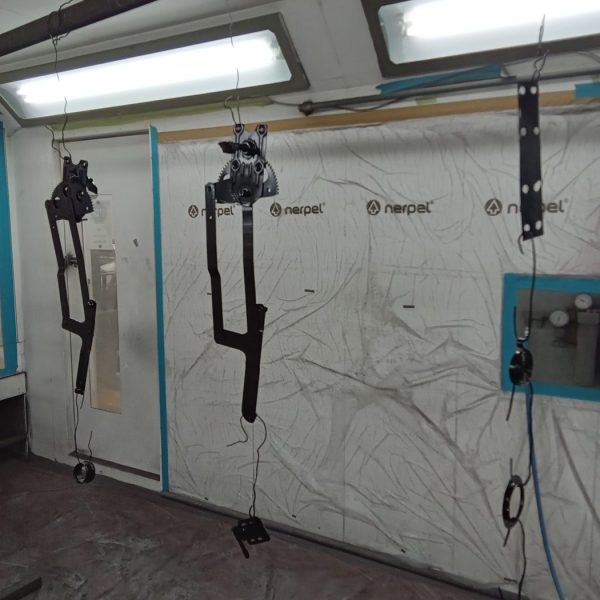
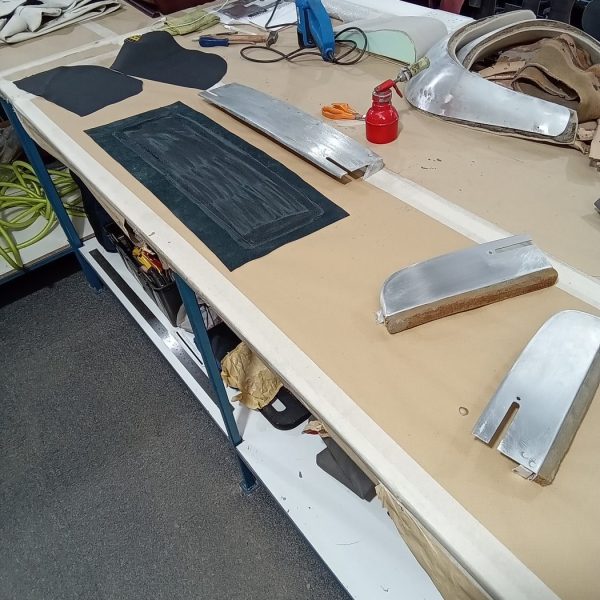
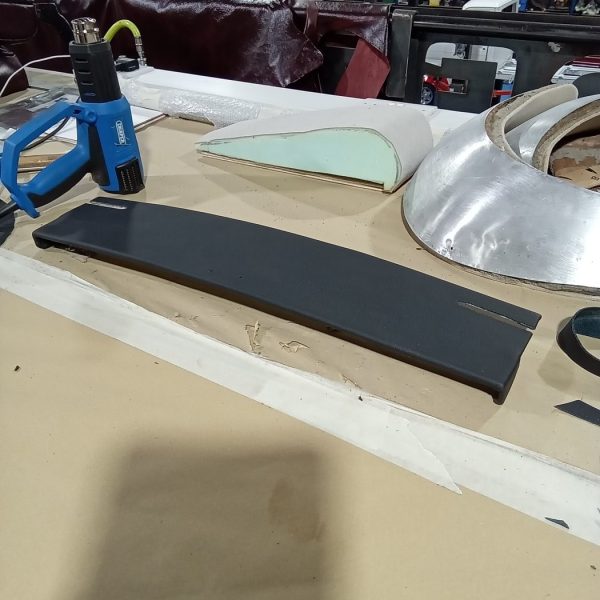
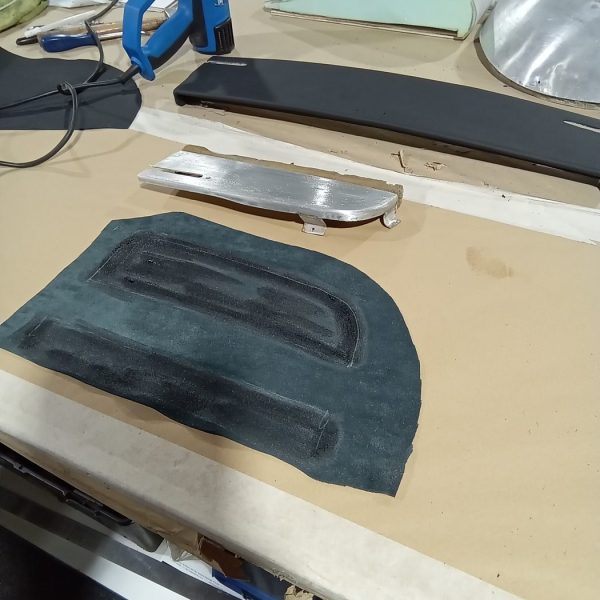
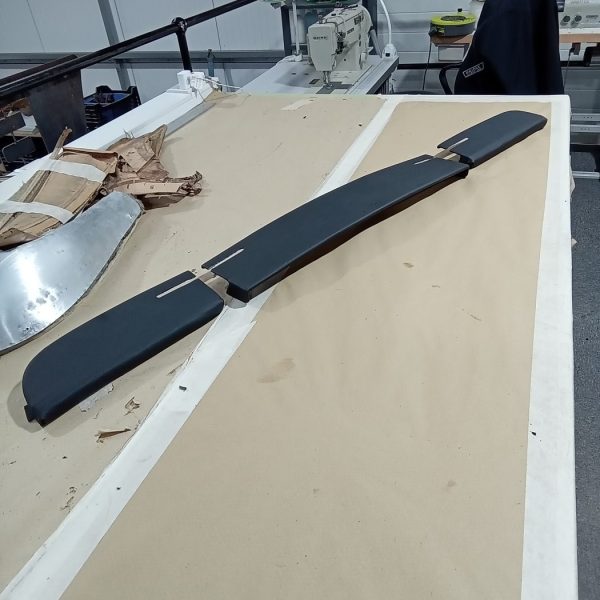
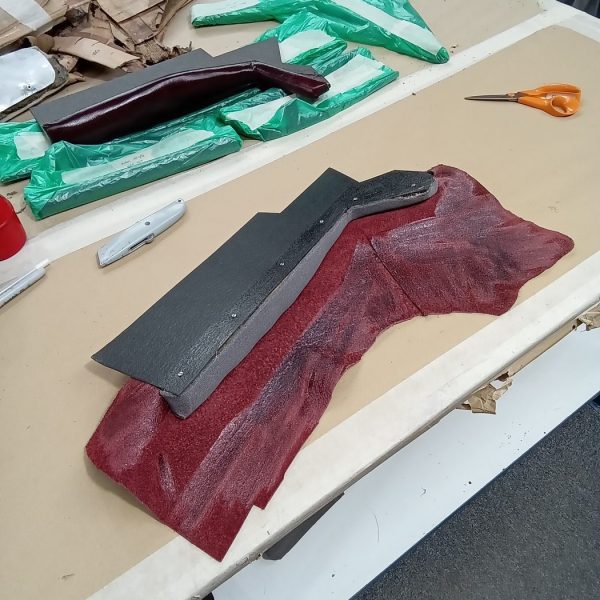
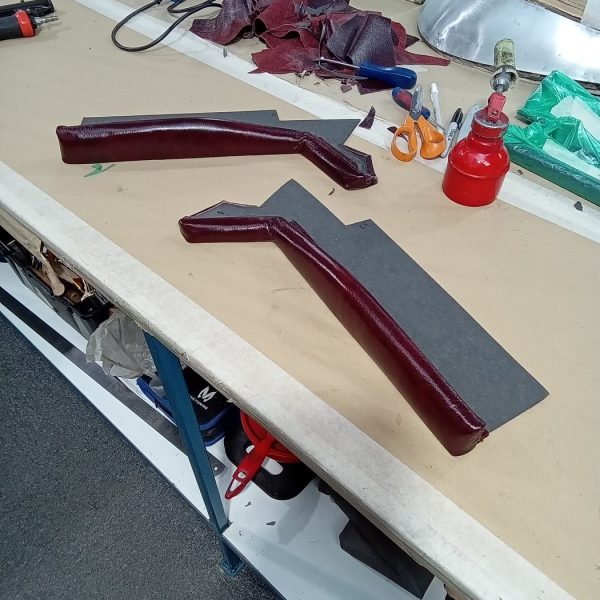
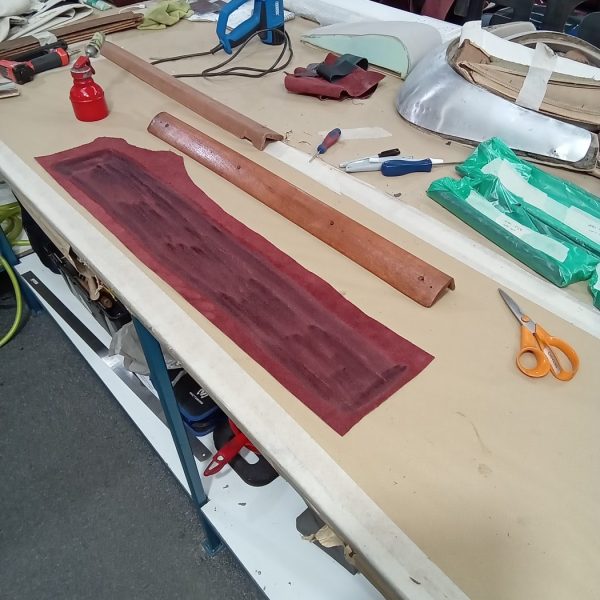
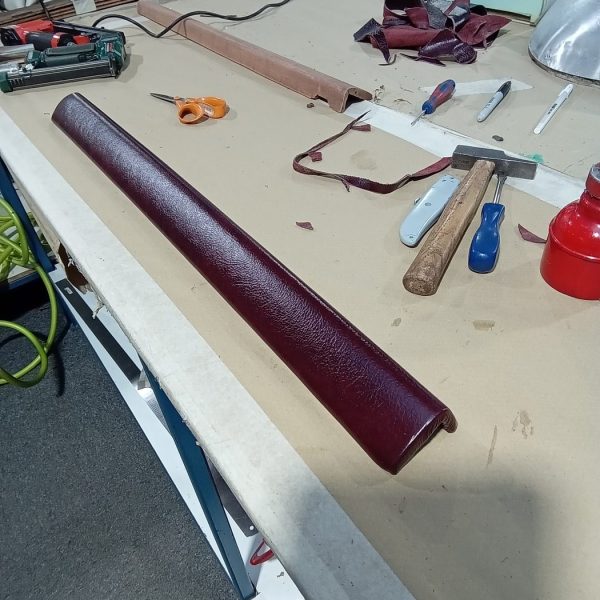
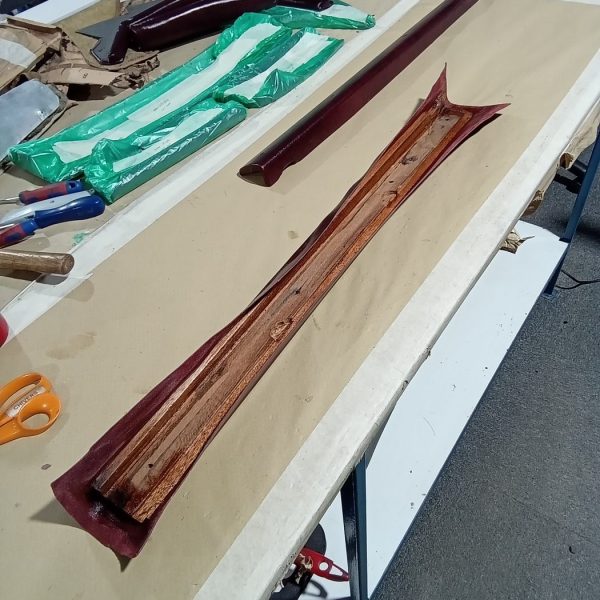
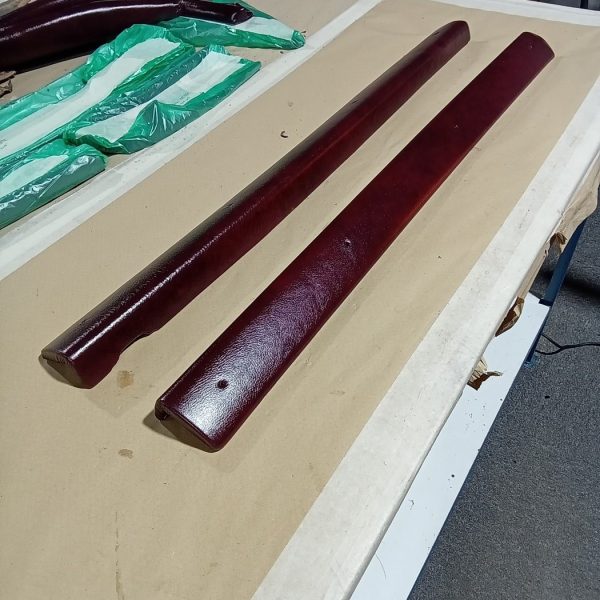
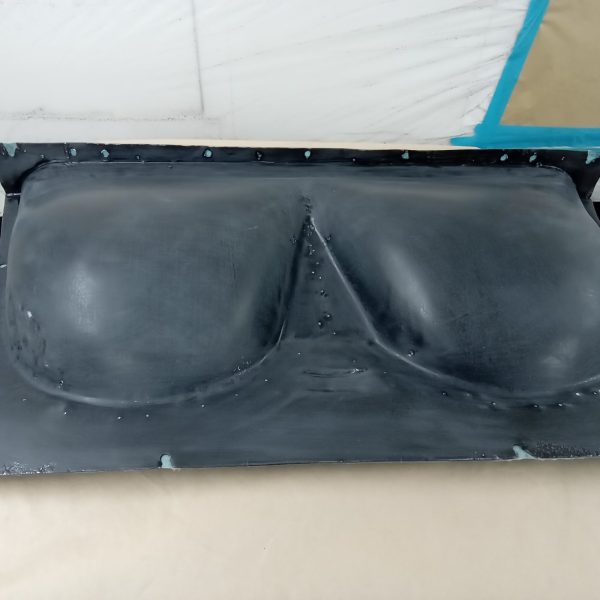
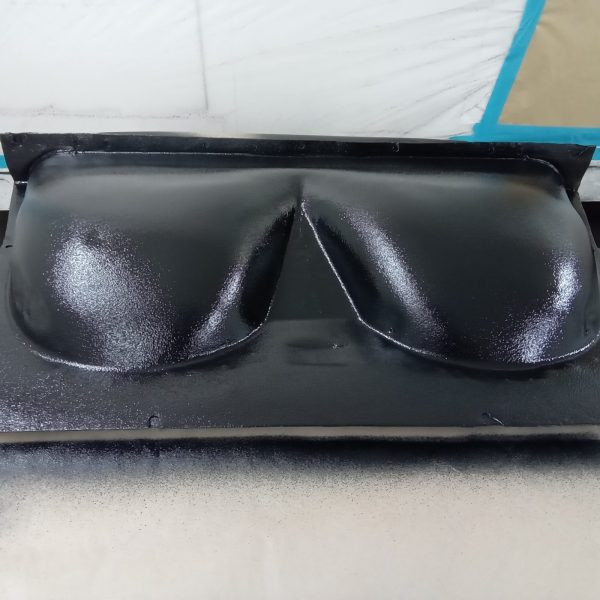
Brian and Lydia have been working on our 1953 Aston Martin DB2/4, specifically the centre console and rear panels.
Using the existing material from the original, Lydia remade the centre console to match the new leather choice. This involved cutting and making new piping, new top and side sections, and also covering the wooden base section. The paintwork underneath was looking a bit tatty, so Lydia cleaned this off and then re-sprayed it with a fresh coat of black.
As for the rear side panels, the old ones had all but disintegrated. Lydia cut new ones from plywood, checking the shape in the car as she went. Then she cut new fabric and binding for the cover, sewed this together, and glued the new piece to the board.
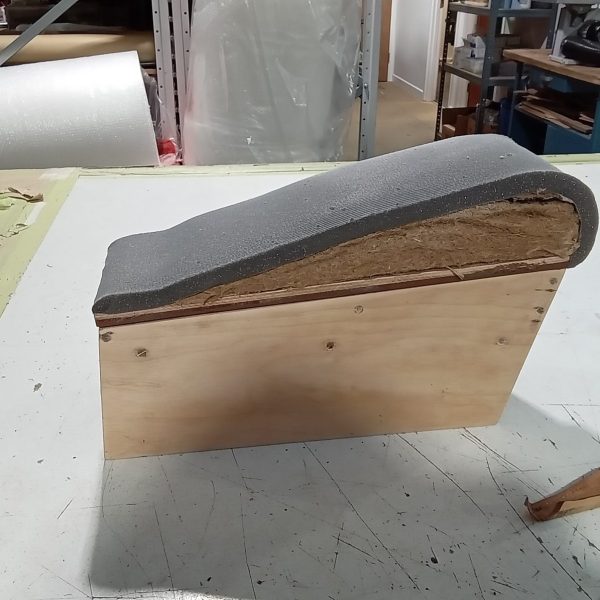
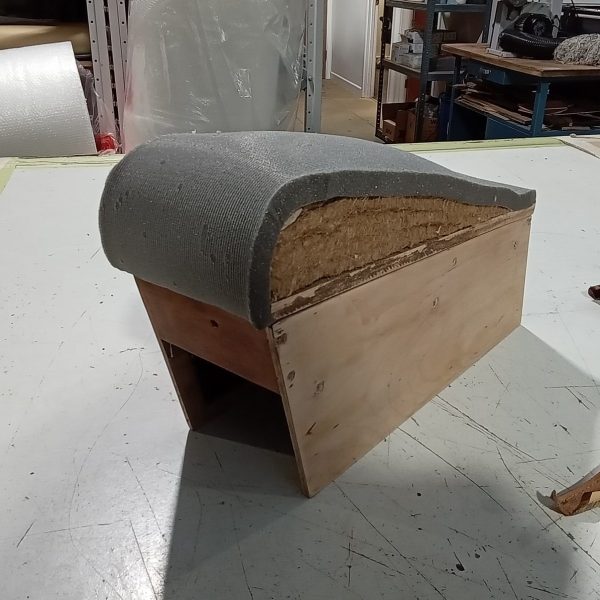
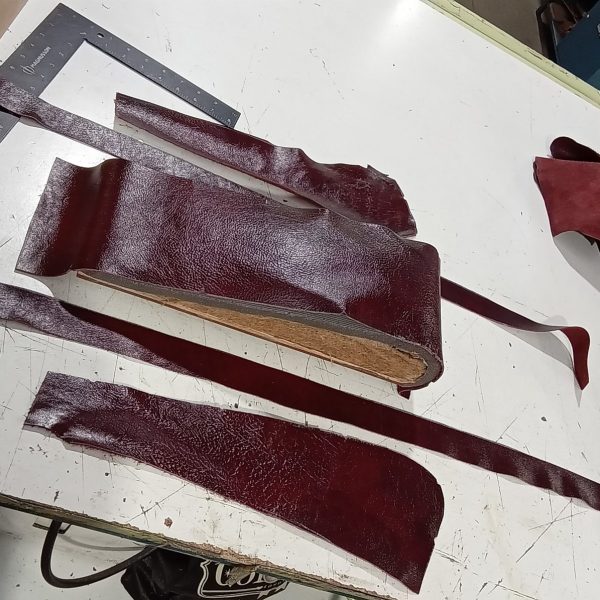
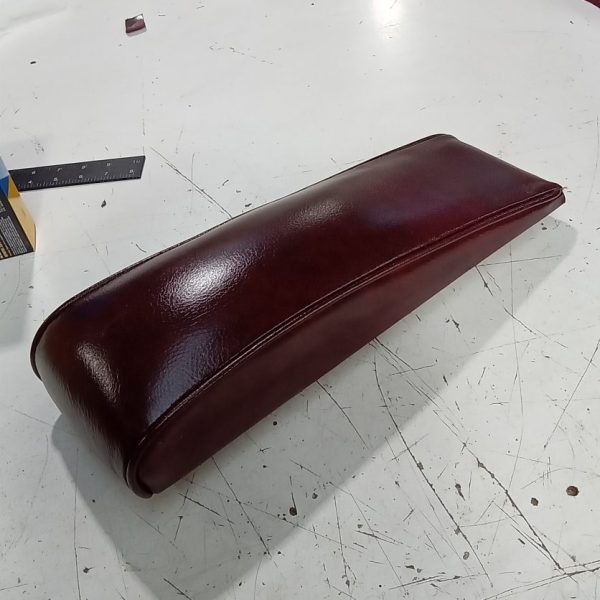
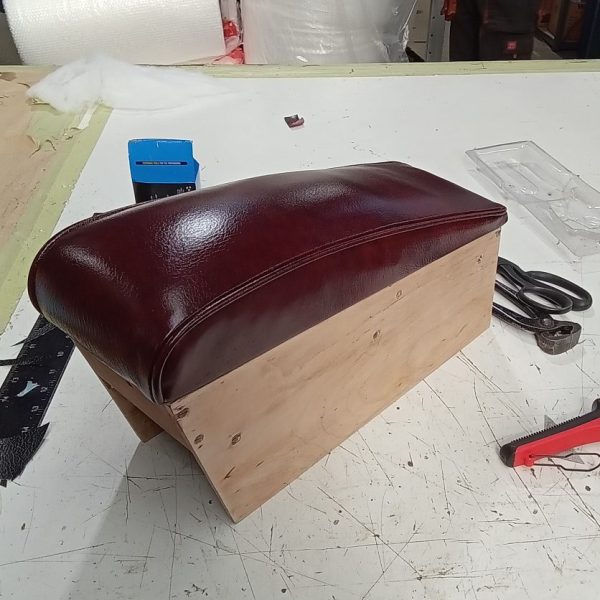
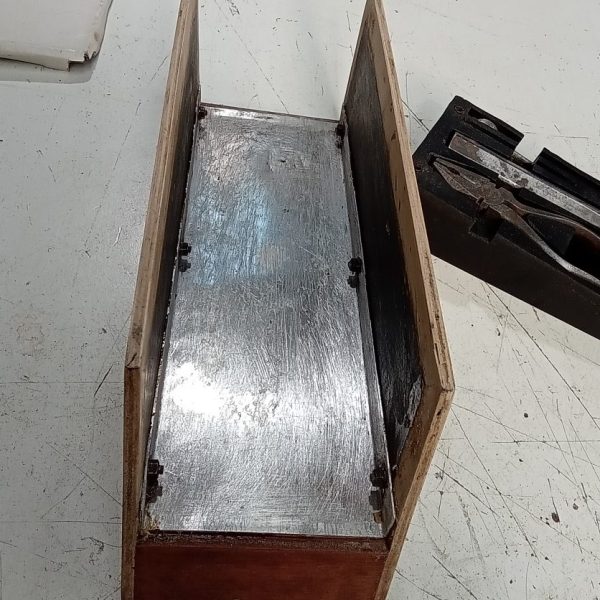
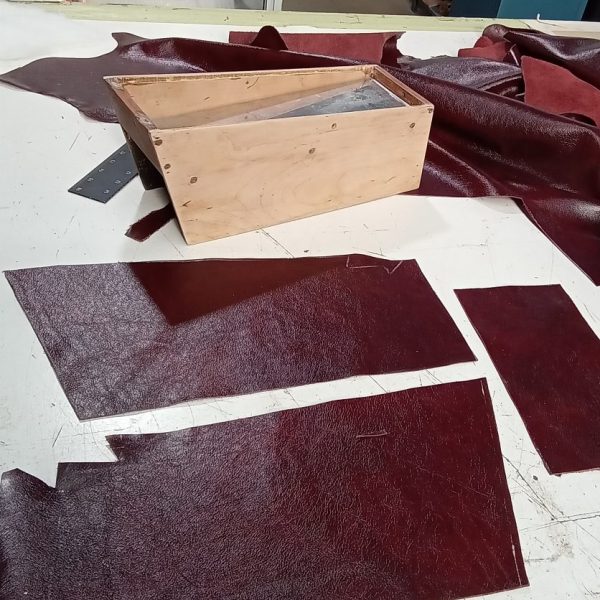
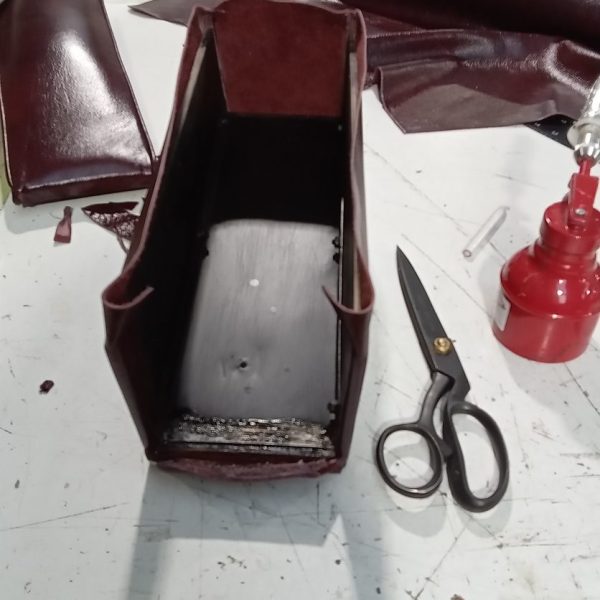
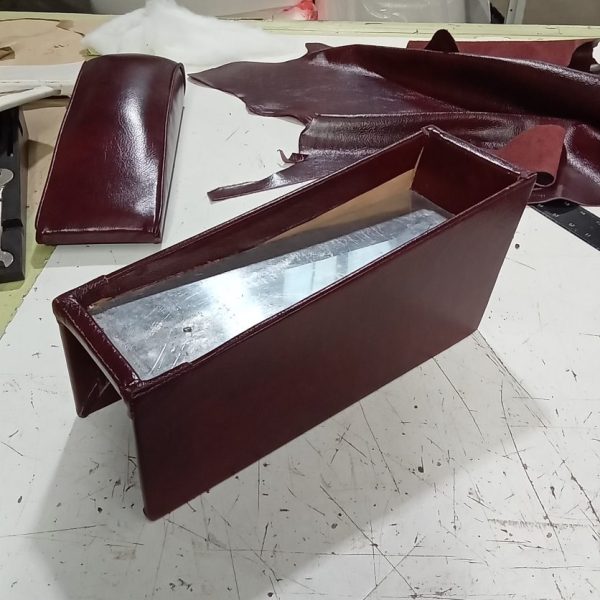
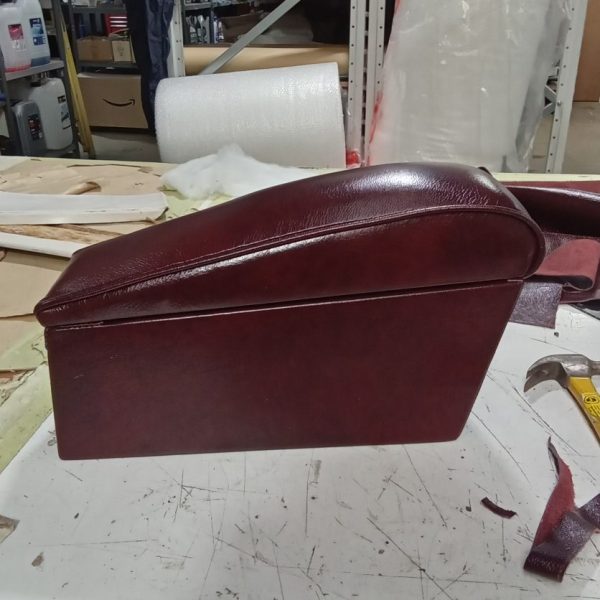
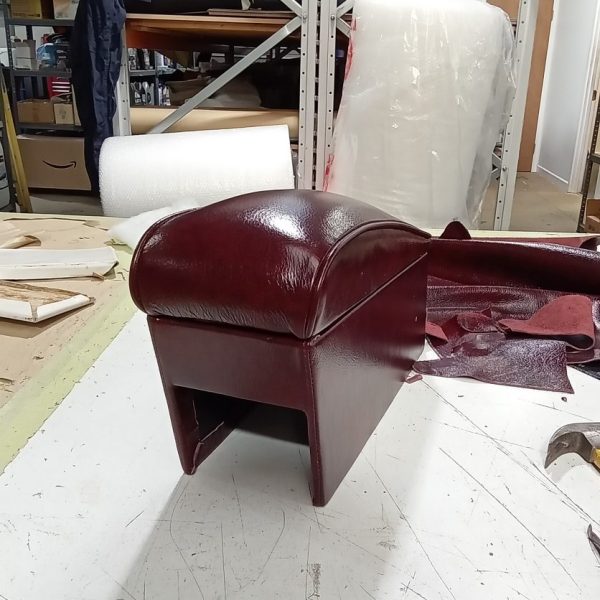
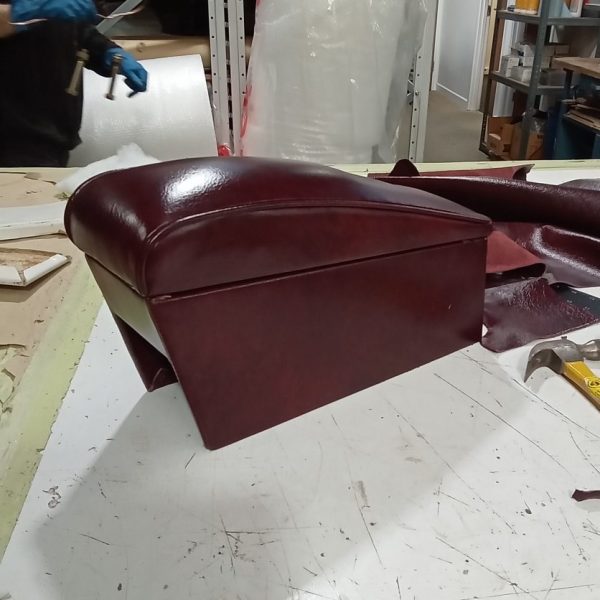
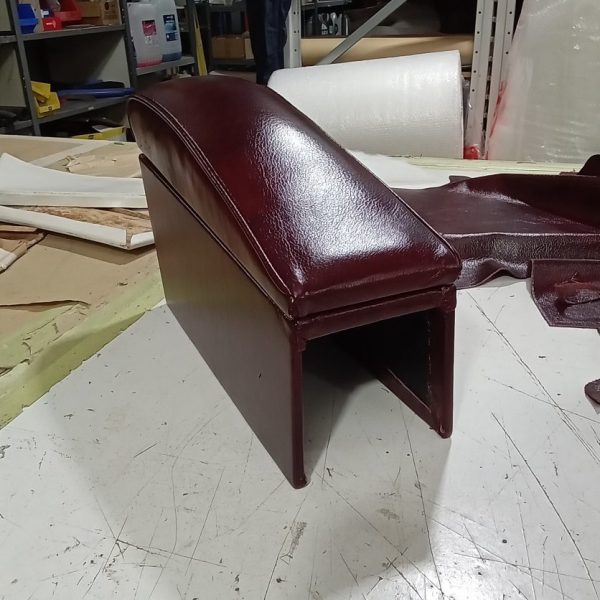
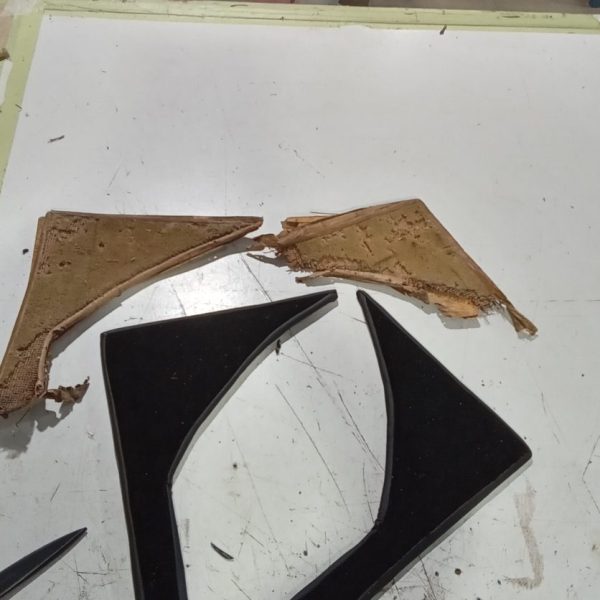
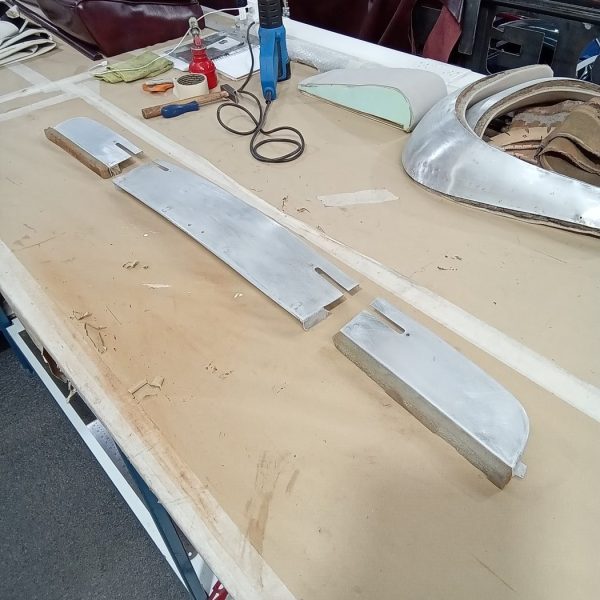
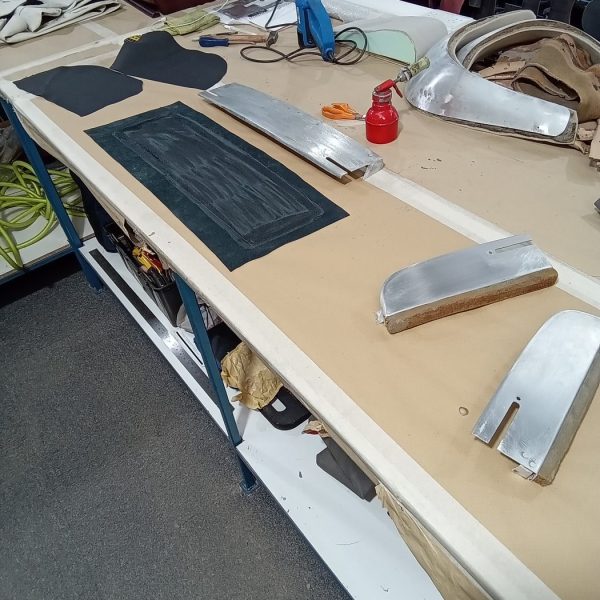
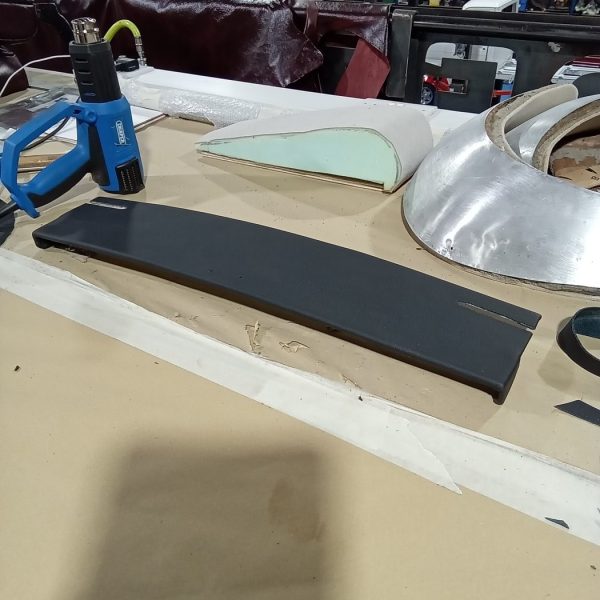
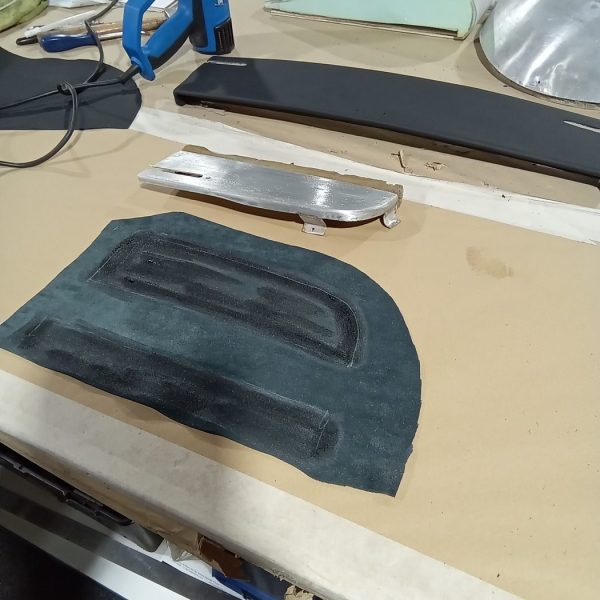
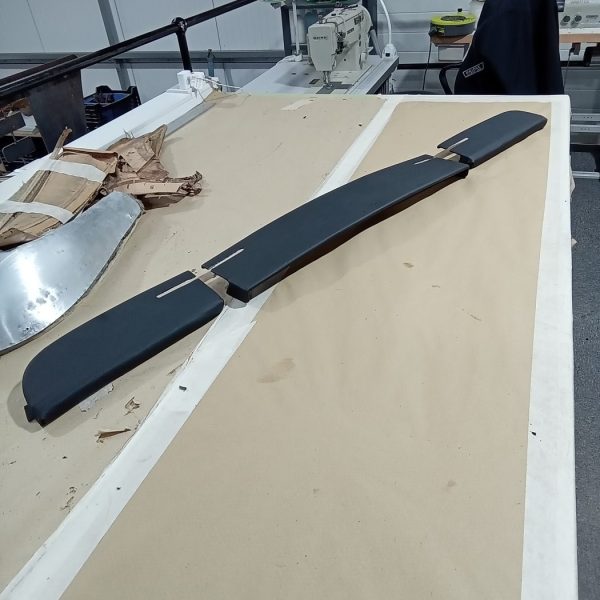

Although it has been in a workshop for a little while now, and our restoration teams have begun the process of bringing this wonderful early DB2/4 back to its former glory, we never did get to take some of usual arrival photos with the car.



On a Friday evening, our entire Suffolk HQ down tools to clean up all of our workshop and offices ready for the week ahead. This involves moving some, if not all, of our incredible restoration projects outside to safely clean our restoration workshop.



So, I took the chance to grab some photos with this stunning GT car. This is one of the cars that not only cemented the Aston Martin name into automotive history as one of the most illustrious and well-respected names, but also would bring the fabled DB name into the limelight and on wards into the future of the brand.



All of us, both in the workshop and in the team behind them, see it as an absolute pleasure and honour to be able to preserve and cherish these wonderful piece of automotive history and document their rebirth.
Bridge Classic Cars are award winning Classic Car Restoration and Maintenance specialists. Your pride and joy is in safe hands with our expert Classic Car Technicians. Take a look at our awards here.
We use cookies to deliver the best possible experience whilst visiting our website. By clicking "Accept All", you consent to our use of cookies, or you can manage your preferences by clicking the link below. You can manage your preferences at any time from out Cookie Policy page.